|





Every year, we send an assortment of well-educated men and women to Florida�s State Capitol to represent us. They speak for us, act on our behalf, educate themselves about importatnt issues, learn how to work together and try to execute productive resolutions. If they like the job, they run for re-election. Sometimes, their reasons for being there differ from those given to their constituents prior to Election Day; their actions become inconsistent with their promises while questions about their legislative intentions are buried in a blizzard of platitudes. When this occurs, its usually a good time to consider �changing the guard�.
 | | STATE OF FLORIDA |
 To be effective, politicians must master a spectrum of communication skills. The art of defining an issue and exhorting the need for a piece of palliative legislation in the same breath is known as �spin�. Depending on how its utilized, �spin� can be either a tool or a weapon; it can rally support for a good cause or create just enough confusion to allow a fox into the henhouse. To be effective, politicians must master a spectrum of communication skills. The art of defining an issue and exhorting the need for a piece of palliative legislation in the same breath is known as �spin�. Depending on how its utilized, �spin� can be either a tool or a weapon; it can rally support for a good cause or create just enough confusion to allow a fox into the henhouse.
 | | REP. CHIP LaMARCA |
In order to determine whether or not your representatives still speak for you, you must examine their work product. To properly diagnose or �unspin� an issue, simply read the actual legislation. If you don�t have the time or patience to peruse the dry legislative text, review an authoritative summary. Corresponding with your representatives is another alternative to directly examining legislative content. Every year, legislation affecting Galt Mile residents oozes out of Tallahassee, often unnoticed. The issues surrounding that legislation will be explained in this section. Before next year�s legislative session, the articles will be relegated to the site�s Tallahassee Archives, setting the stage for the new session. Email, write, FAX or telephone your Statehouse Representative and your Senator with the specific obstacles that any issue or legislative effort hold for you. To find all the contact information for the Galt Mile�s political representatives in Tallahassee or elsewhere, go to the Report Card.
 | | SENATOR GARY FARMER |
 | GEORGETOWN HISTORIAN
CARROLL QUIGLEY |
Galt Mile Residents are currently represented by George Moraitis in the Florida Statehouse and Gary Farmer in the Florida Senate. Notwithstanding their official �party� affiliations, their primary responsibility is to YOU. They are obligated to exercise their voting power and influence the outcomes of certain issues based upon the feedback they recieve from their constituents - US. If they don't - as exclaimed by Georgetown University Professor Carroll Quigley while considering the virtues of Democracy - we can �Throw the rascals out.�
  After familiarizing ourselves with the legislative land mines planted during the annual session and unifying behind issues that benefit the entire neighborhood, we can send our political representatives in Tallahassee a clear and unconflicted wish list. Furthering their constituents' agenda will have a far greater impact on their future political ascendency than their party affiliations - or ours. This pro-active formula also shields our community from the paralysis of partisan gridlock that might otherwise belabor efforts to enact favorable legislation. By sending a few strategically timed emails, we can thwart bills conceived to abridge our rights, erode home rule and drain association budgets. Not a bad day's work! After familiarizing ourselves with the legislative land mines planted during the annual session and unifying behind issues that benefit the entire neighborhood, we can send our political representatives in Tallahassee a clear and unconflicted wish list. Furthering their constituents' agenda will have a far greater impact on their future political ascendency than their party affiliations - or ours. This pro-active formula also shields our community from the paralysis of partisan gridlock that might otherwise belabor efforts to enact favorable legislation. By sending a few strategically timed emails, we can thwart bills conceived to abridge our rights, erode home rule and drain association budgets. Not a bad day's work!
 | | DOLPHIN SCULPTURE AT ENTRANCE TO THE STATE CAPITOL COMPLEX |
Click To Top of Page

|
 |
|
2009 Legislative Session
Judges Jump when Banks Bark

 | | DONNA BERGER ESQ |
December 29, 2009 -  On November 30, 2009, association attorney and activist Donna Berger sent an email recounting a November 24th blog she wrote about banking industry in-court maneuvers that have associations frantically trotting a legal hamster wheel. The blog entry speaks to institutionalized tactics promulgated by banks to forestall taking title to foreclosed properties. Among the battery of methodologies deployed by the banking industry are legal motions that are akin to monkey wrenches thrown into the judicial process. On November 30, 2009, association attorney and activist Donna Berger sent an email recounting a November 24th blog she wrote about banking industry in-court maneuvers that have associations frantically trotting a legal hamster wheel. The blog entry speaks to institutionalized tactics promulgated by banks to forestall taking title to foreclosed properties. Among the battery of methodologies deployed by the banking industry are legal motions that are akin to monkey wrenches thrown into the judicial process.
 Banks are circumventing association arguments and encumbering foreclosure proceedings with court ordered delays by filing ex parte motions. Usually reserved for urgent matters where requiring notice would subject one party to irreparable harm, ex parte motions are requests for emergency rulings on behalf of or involving only one party to a legal matter and in the absence of and usually without notice to the other party. Occasionally concomitant with divorce or separation petitions, they preclude a parent or partner from skipping town with jointly held assets or the kids while the parties await a turn on the docket. Banks are circumventing association arguments and encumbering foreclosure proceedings with court ordered delays by filing ex parte motions. Usually reserved for urgent matters where requiring notice would subject one party to irreparable harm, ex parte motions are requests for emergency rulings on behalf of or involving only one party to a legal matter and in the absence of and usually without notice to the other party. Occasionally concomitant with divorce or separation petitions, they preclude a parent or partner from skipping town with jointly held assets or the kids while the parties await a turn on the docket.
 In addition to creatively reconfiguring these preemptive emergency requests to delay foreclosure actions, they use the more traditional tactics of flooding the court with capricious motions to vacate and thwarting scheduled sales by simply not showing up! Donna intimates that these maneuvers would fail were it not for some degree of collaboration by accommodating judges. While it is possible that judges are oblivious to the part they play in exacerbating the burden on every one of the association�s unit owners, the regularity with which courts cooperate with these overtly abusive tactics supports that their complicity is �informed�. In addition to creatively reconfiguring these preemptive emergency requests to delay foreclosure actions, they use the more traditional tactics of flooding the court with capricious motions to vacate and thwarting scheduled sales by simply not showing up! Donna intimates that these maneuvers would fail were it not for some degree of collaboration by accommodating judges. While it is possible that judges are oblivious to the part they play in exacerbating the burden on every one of the association�s unit owners, the regularity with which courts cooperate with these overtly abusive tactics supports that their complicity is �informed�.
 Recently, the courts leveled a groin kick to strapped associations. In �U.S. Bank National Association as Trustee for the Benefit of Harborview 2005-10 Trust Fund v. Tadmore, 2009 WL 4281301, 34 FLW D2505 (Fla. 3rd DCA 2009)�, the Third District Court of Appeal for Miami-Dade rejected the idea that equity and fairness are adequate reasons for requiring lenders to pay association fees while a foreclosure case is still pending against the unit owner. Recently, the courts leveled a groin kick to strapped associations. In �U.S. Bank National Association as Trustee for the Benefit of Harborview 2005-10 Trust Fund v. Tadmore, 2009 WL 4281301, 34 FLW D2505 (Fla. 3rd DCA 2009)�, the Third District Court of Appeal for Miami-Dade rejected the idea that equity and fairness are adequate reasons for requiring lenders to pay association fees while a foreclosure case is still pending against the unit owner.
 After tolerating a year of bank delays in a foreclosure case, an association filed a motion to compel the bank to move forward within a certain time frame or pay assessments (maintenance fees) on the unit. Judge Scott J. Silverman of the Eleventh Judicial Circuit of Florida for Miami-Dade granted the Association�s motion, ordering the bank to diligently proceed within thirty (30) days or start paying the $939.56 monthly maintenance fee. After tolerating a year of bank delays in a foreclosure case, an association filed a motion to compel the bank to move forward within a certain time frame or pay assessments (maintenance fees) on the unit. Judge Scott J. Silverman of the Eleventh Judicial Circuit of Florida for Miami-Dade granted the Association�s motion, ordering the bank to diligently proceed within thirty (30) days or start paying the $939.56 monthly maintenance fee.
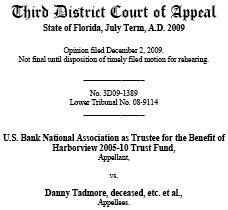 Since banks are bound by statute to assume assessment responsibilities only after acquiring title to a property, the appellate Court characterized the obligation to pay assessments as a sanction and zapped the ruling. In a December 2, 2009 Opinion, the court ragged the association for not exhausting more traditional means available to address delay, such as filing for a Show Cause order. Contending that the association was therefore not entitled to extraordinary relief, the appellate Court reversed the Order and sent the association back to the drawing board. In its opinion, the appellate Court made the cynical observation that �in its quest to do equity, a court cannot trammel the legal rights of the parties.� Since banks are bound by statute to assume assessment responsibilities only after acquiring title to a property, the appellate Court characterized the obligation to pay assessments as a sanction and zapped the ruling. In a December 2, 2009 Opinion, the court ragged the association for not exhausting more traditional means available to address delay, such as filing for a Show Cause order. Contending that the association was therefore not entitled to extraordinary relief, the appellate Court reversed the Order and sent the association back to the drawing board. In its opinion, the appellate Court made the cynical observation that �in its quest to do equity, a court cannot trammel the legal rights of the parties.�
 | JUDGE SCOTT
J. SILVERMAN |
Of course, a legislative resolution would move the playing field out of the courthouse. Unfortunately, the banking industry was able to leverage its standing as the State�s most powerful lobby to curtail every relevant bill filed during the last legislative session.
 | | SENATOR MIKE FASANO |
During the 2009 regular legislative session, Tallahassee experienced the staggering influence wielded by the banking lobby. By delaying assumption of title, banks forestall assessment obligations to the association for foreclosed units, forcing the other unit owners to pay the bank�s share. Although thousands of associations pleaded for legislative relief from the banking industry�s dilatory foreclosure strategy, Florida Statehouse and Senate leaders warned lawmakers that any bill threatening banks with additional costs will suffer desiccation on the calendar. Following the announcement, several fast-moving, popular bills were hung out to dry.
 | | SENATOR JEREMY RING |
New Port Richey Republican Senator Mike Fasano filed Senate Bill 880 (SB 880), extending lender liability to the lesser of 12 months of past due fees and special assessments or 20 percent of the mortgage amount if payment to the association is made within 30 days of taking title. The cap would vanish after the 30-day deadline. Senator Jeremy Ring, a Parkland Democrat, filed Senate Bill 998 (SB 998), requiring lenders to take title on investor-owned units within 12 months of filing foreclosure, with no penalty for that year of engineered delay. As the session progressed, at least a dozen other bills providing similar relief options were folded into major filings best positioned for passage.
 | J. THOMAS CARDWELL - FLA
BANKERS ASSN COUNSEL |
In a monument to contradiction, after first maintaining that he hadn�t seen any evidence of bank delays in taking title, general Counsel J. Thomas Cardwell of the Florida Bankers Association enumerated several reasons for delays that he just claimed were �nonexistent�. Cardwell said �Lenders are only trying to help keep homeowners in their properties,� asserting that the foreclosure foot-dragging is simply the industry�s way of actualizing altruistic foreclosure moratoriums. Wagging the dog, he proceeded to blame homeowners for bogging down the court system by mounting time-consuming defenses.
 Contending that the relief bills were squelched to benefit Condominium owners, Cardwell stated �These bills could severely damage the ability to obtain financing on condos, and because of that, would do much more damage to condos and condo associations than they would do good.� Mid-way through the session, after the bills had clearly gained sufficient support and momentum for passage, bank lobbyists handed legislative leaders a non-negotiable ultimatum. The industry threatened to hike interest rates on Florida condo loans or stop writing condo mortgages altogether if changes were made to the current law. Overnight � and despite its penalty-free construction � Ring�s bill withered. Since lenders refused to risk losses incremental to the collateral devaluation already reddening their books, Fasano�s bill was also euthanized. Contending that the relief bills were squelched to benefit Condominium owners, Cardwell stated �These bills could severely damage the ability to obtain financing on condos, and because of that, would do much more damage to condos and condo associations than they would do good.� Mid-way through the session, after the bills had clearly gained sufficient support and momentum for passage, bank lobbyists handed legislative leaders a non-negotiable ultimatum. The industry threatened to hike interest rates on Florida condo loans or stop writing condo mortgages altogether if changes were made to the current law. Overnight � and despite its penalty-free construction � Ring�s bill withered. Since lenders refused to risk losses incremental to the collateral devaluation already reddening their books, Fasano�s bill was also euthanized.
In essence, after his employers threatened to dismantle the condo market if any expediting legislation were passed, Cardwell had the temerity to plead that lawmakers heed the consequences on behalf of those homebuyers facing a sudden dearth of mortgage financing.
During the post-session, association advocates have been meeting with legislators in preparation for another run at the banks. Since the banking lobby continues to sit atop Mount Ararat in Tallahassee, legislative relief still faces an obstacle fueled by virtually unlimited resources. Nonetheless, Berger�s email considers taking action that could provide a modicum relief in the courts. Outlining how the banks have successfully dodged legal redress, her blog entry is as follows: [editor] 

What tactics do banks use to stall their foreclosure actions?
I haven�t talked to a single person (other than my banker) who doesn�t want to either (a) make banks pay more back assessments to community associations in which they hold mortgages or (b) make banks expedite their foreclosure actions.
We are obviously at cross purposes with most banks who have absolutely no incentive whatsoever to take back title to these properties. What happens when the bank takes back title especially to a property that has no equity?
The bank must first pay the statutorily required back assessments (6 months in a condominium association and 12 months in a homeowners� association);
The bank must start paying regular and special assessments on that property like every other owner in the community; and
The bank must incur additional liability as a property owner to maintain, insure and repair that property and market it for sale.
What happens when the bank delays taking title back to the property?
The rest of the owners in the community continue to maintain the value of the bank�s collateral by paying to maintain and insure the overall community (fixing the roof, maintaining the landscaping, etc.); and
The property is waiting for them to take back when the market rebounds.
The question then is how are banks managing to stall their foreclosure actions? Some are using the judicial process cleverly by filing ex parte motions. An ex parte motion asks for a court order before the other party (the association) has an opportunity to be heard on the request. An ex parte motion in a child custody hearing where a parent could flee the jurisdiction is one thing but an ex parte motion to set aside the bank�s Final Judgment because there is no equity in the unit??
What other tactics are lenders� counsel employing lately? They are moving to vacate the certificate of title, moving to vacate final judgments (discussed above), moving multiple times to reschedule the foreclosure sales or simply not showing up to scheduled sales or canceling the sale date unilaterally by putting these options into their Final Judgments. Of course, there are defenses to these tactics that the association can raise but most don�t have the money or energy to fight the banks.
Interestingly, lender�s counsel usually must convince the Court that no defendant will be prejudiced by the granting of the ex parte motion being requested. An association not hurt after years of waiting for the bank to foreclose and to have a new owner start paying its fair share of assessments only to be delayed once again by legal maneuvering? It�s hard to believe any trier of fact would easily buy that argument.
Posted by
Donna D. Berger, Esq.
7:53 AM on November 24, 2009


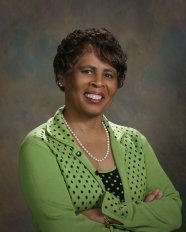 | | CHIEF JUSTICE PEGGY A. QUINCE |
Berger�s concluding statement hits the nail on the head. In cases wherein the motion was granted, either the judge overlooked requiring assurances that the action wouldn�t unfairly compromise the association�s case or the bank attorney blatantly misrepresented the facts. Seeking a resolution to this anathematic abuse of the legal system, she prefaced her email to members of the Community Advocacy Network Advisory Council (a consulting panel of association activists in which the Galt Mile Community Association participates) by stating �Most judges simply are unaware that the banks� ex parte motions are not, in fact, harmless as they are being told. My question to the Council is how do you suggest getting this information in the hands of our judiciary so they become wise to the issues and start scrutinizing these motions and tactics a little closer?� In wrapping up her preface with �Forwarding the blog to the chief judges around the State is one idea. Any others?� � Berger seemingly answers her own question.
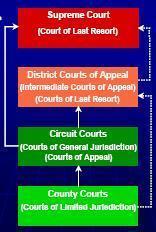 In Florida�s State Court structure, the 322 judges in the State�s 67 County Courts handle cases involving tort contracts, small claims (up to $5000), real property (from $5000 to $15,000), miscellaneous civil issues, misdemeanors, preliminary hearings, traffic and other violations (except parking, which is handled administratively). Although Certified Questions (writs of certiorari, prohibition, mandamus, quo warranto, habeas corpus, etc.) can go to the Appellate Court, decisions made by the County Court�s individual judges are appealed to the Circuit Courts. The 599 judges in the State�s 20 Circuit Courts hold jury trials (except in appeals) for torts, contracts, real property in excess of $15,000, miscellaneous civil, mental health, probate/guardianship/estate, civil appeals, domestic relations (family law matters), felonies, criminal appeals and juvenile (dependency and delinquency) cases. Depending on the case, Circuit Court decisions are appealed to the Appellate Court or the State Supreme Court. In Florida�s State Court structure, the 322 judges in the State�s 67 County Courts handle cases involving tort contracts, small claims (up to $5000), real property (from $5000 to $15,000), miscellaneous civil issues, misdemeanors, preliminary hearings, traffic and other violations (except parking, which is handled administratively). Although Certified Questions (writs of certiorari, prohibition, mandamus, quo warranto, habeas corpus, etc.) can go to the Appellate Court, decisions made by the County Court�s individual judges are appealed to the Circuit Courts. The 599 judges in the State�s 20 Circuit Courts hold jury trials (except in appeals) for torts, contracts, real property in excess of $15,000, miscellaneous civil, mental health, probate/guardianship/estate, civil appeals, domestic relations (family law matters), felonies, criminal appeals and juvenile (dependency and delinquency) cases. Depending on the case, Circuit Court decisions are appealed to the Appellate Court or the State Supreme Court.
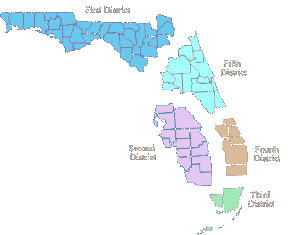 62 judges sit in 3-judge panels on the State�s 5 District Courts of Appeal. Headquartered in Tallahassee, Lakeland, Miami, West Palm Beach, and Daytona Beach, the Appellate Courts have mandatory jurisdiction in civil, noncapital criminal, administrative agency, juvenile, original proceeding, interlocutory decision cases as well as discretionary jurisdiction for all of these except for administrative agency cases. Decisions can be appealed to the 7 justices that sit �en banc� in the State�s Supreme Court. The State�s Court of last resort, The State�s Court of last resort, Florida�s Supreme Court case types include mandatory jurisdiction in civil, capital criminal, criminal administrative agency, juvenile, disciplinary, advisory opinion cases and discretionary jurisdiction in civil, noncapital criminal, administrative agency, juvenile, disciplinary, advisory opinion, original proceeding, interlocutory decision cases. Their case load includes Constitutional questions, Bond Validations, Public Utility cases, validity of statutes and decisions affecting a class of constitutional/statutory officers. 62 judges sit in 3-judge panels on the State�s 5 District Courts of Appeal. Headquartered in Tallahassee, Lakeland, Miami, West Palm Beach, and Daytona Beach, the Appellate Courts have mandatory jurisdiction in civil, noncapital criminal, administrative agency, juvenile, original proceeding, interlocutory decision cases as well as discretionary jurisdiction for all of these except for administrative agency cases. Decisions can be appealed to the 7 justices that sit �en banc� in the State�s Supreme Court. The State�s Court of last resort, The State�s Court of last resort, Florida�s Supreme Court case types include mandatory jurisdiction in civil, capital criminal, criminal administrative agency, juvenile, disciplinary, advisory opinion cases and discretionary jurisdiction in civil, noncapital criminal, administrative agency, juvenile, disciplinary, advisory opinion, original proceeding, interlocutory decision cases. Their case load includes Constitutional questions, Bond Validations, Public Utility cases, validity of statutes and decisions affecting a class of constitutional/statutory officers.
 Although directly alerting the State�s Chief Judges will help edify jurists prospectively misinformed that the bank�s ex parte motions are harmless, it will also convey that their decisions are being scrutinized by a sizable audience, not just the usual handful of engaged attorneys. Since this problem is largely national in scope, another possible option would be to contact the Conference of Chief Justices (CCJ) with this information. Among their projects is a Best Practices Institute charged with identifying and promoting practices that enhance the effective administration of justice as part of �a broad strategy to improve court performance and better serve the public.� To improve public trust and confidence, the CCJ also initiated a Public Trust and Confidence Forum. To help start the ball rolling, contact information for the Chief Justice of the State�s Supreme Court and the Chief Judges for the five District Courts of Appeal are listed below. Although directly alerting the State�s Chief Judges will help edify jurists prospectively misinformed that the bank�s ex parte motions are harmless, it will also convey that their decisions are being scrutinized by a sizable audience, not just the usual handful of engaged attorneys. Since this problem is largely national in scope, another possible option would be to contact the Conference of Chief Justices (CCJ) with this information. Among their projects is a Best Practices Institute charged with identifying and promoting practices that enhance the effective administration of justice as part of �a broad strategy to improve court performance and better serve the public.� To improve public trust and confidence, the CCJ also initiated a Public Trust and Confidence Forum. To help start the ball rolling, contact information for the Chief Justice of the State�s Supreme Court and the Chief Judges for the five District Courts of Appeal are listed below.
 | CHIEF JUDGE
PAUL M. HAWKES |
Florida Supreme Court � Chief Justice Peggy A. Quince
500 South Duval Street, Tallahassee, Florida 32399-1925
Telephone: (850) 922-5624
http://www.floridasupremecourt.org/justices/quince.shtml
First District Court of Appeal � Chief Judge Paul M. Hawkes
301 S. ML King Blvd., Tallahassee, Florida 32399-1850
Telephone: (850) 487-1000
http://www.1dca.org/judges/hawkes.html
Second District Court of Appeal � Chief Judge Darryl C. Casanueva
1005 E. Memorial Blvd., Lakeland, FL 33801
Telephone: (863) 499-2290
http://www.2dca.org/Judges/Bio/casanueva.shtml
 | CHIEF JUDGE
JUAN RAMIREZ, JR. |
Third District Court of Appeal � Chief Judge Juan Ramirez, Jr.
2001 S.W. 117 Ave., Miami, Florida 33175
Telephone: (305) 229-3200
http://www.3dca.flcourts.org/Judges/25-Ramirez.shtml
Fourth District Court of Appeal � Chief Judge Robert M. Gross
1525 Palm Beach Lakes Blvd., West Palm Beach, FL 33401
Telephone: (561) 242-2000
http://www.4dca.org/judges/gross.shtml
Fifth District Court of Appeal � Chief Judge David A. Monaco
300 South Beach Street, Daytona Beach, FL 32114
Telephone: (386) 255-8600
http://www.5dca.org/Judges/Monaco/Monaco_page.shtml
Go to http://www.flcourts.org/courts/circuit/circuit.shtml for links to all 20 Florida Circuit Courts and http://www.flcourts.org/courts/county/county.shtml for links to Florida�s County Courts. [editor] 

Click To Top of Page
Revived Claims Could Fill Condo Coffers
  
Buckley Towers Verdict Changes Legal Landscape

 October 31, 2009 - October 31, 2009 -  For some Galt Mile Community Association members, this information may represent an opportunity to bring closure to a painful, abusive and unrequited process endured several years ago on the heels of Florida�s devastating serial hurricanes. For others, it might offer a last pull at their property insurance slot machine. Notwithstanding the motive, it could seriously enhance the association�s fiscal viability. For some Galt Mile Community Association members, this information may represent an opportunity to bring closure to a painful, abusive and unrequited process endured several years ago on the heels of Florida�s devastating serial hurricanes. For others, it might offer a last pull at their property insurance slot machine. Notwithstanding the motive, it could seriously enhance the association�s fiscal viability.
 Following the serial hurricanes of 2004 and 2005, many Galt Mile associations entered into a long slow waltz with their property insurance carriers. Dozens of damage claims were submitted since the summer of 2004, when the State was suddenly subjected to insurance industry convulsions that trebled windstorm rates overnight. Over the next few years, associations detailed their claims progress at monthly GMCA Presidents Council meetings, a strategy implemented to share tactics useful for expediting benefits. Following the serial hurricanes of 2004 and 2005, many Galt Mile associations entered into a long slow waltz with their property insurance carriers. Dozens of damage claims were submitted since the summer of 2004, when the State was suddenly subjected to insurance industry convulsions that trebled windstorm rates overnight. Over the next few years, associations detailed their claims progress at monthly GMCA Presidents Council meetings, a strategy implemented to share tactics useful for expediting benefits.
 Some fortunate associations never sustained enough damage to reach their deductible limit while those that barely exceeded their deductibles filed relatively modest claims. Others were heavily victimized by the storms, with damage in the $millions. In 2004 and 2005, the insurance industry issued an ultimatum to Tallahassee, threatening to leave the State unless approved for virtually unlimited rate increases. When state regulators balked, almost every admitted windstorm carrier hit the road, abandoning the Florida property and casualty market. Some fortunate associations never sustained enough damage to reach their deductible limit while those that barely exceeded their deductibles filed relatively modest claims. Others were heavily victimized by the storms, with damage in the $millions. In 2004 and 2005, the insurance industry issued an ultimatum to Tallahassee, threatening to leave the State unless approved for virtually unlimited rate increases. When state regulators balked, almost every admitted windstorm carrier hit the road, abandoning the Florida property and casualty market.
 By the end of 2005, Australian carrier QBE was the only admitted alternative to Citizens Property Insurance Corporation, Florida�s taxpayer-supported carrier of last resort. When QBE constricted their eligibility requirements, their only Galt Mile client qualified to renew was Regency Tower, having installed impact rated windows and doors throughout. Insurance carriers pay most legitimate claims expeditiously to maintain good will � ordinarily a competitive necessity. As the only game in town, QBE had nothing to lose by continuously delaying claims via incessant requests for irrelevant documentation, purposely valuing damage loss below the hurricane deductible or denying legitimate claims due to eligibility exemptions not listed in the policy. By the end of 2005, Australian carrier QBE was the only admitted alternative to Citizens Property Insurance Corporation, Florida�s taxpayer-supported carrier of last resort. When QBE constricted their eligibility requirements, their only Galt Mile client qualified to renew was Regency Tower, having installed impact rated windows and doors throughout. Insurance carriers pay most legitimate claims expeditiously to maintain good will � ordinarily a competitive necessity. As the only game in town, QBE had nothing to lose by continuously delaying claims via incessant requests for irrelevant documentation, purposely valuing damage loss below the hurricane deductible or denying legitimate claims due to eligibility exemptions not listed in the policy.
 Firmly ensconced in the catbird seat, QBE began requiring evidentiary documentation far in excess of that ordinarily submitted. They also summarily rejected marginally defective claims, such as those with minor �typos�. When the rebuffed claims were meticulously prepared anew by professionals and resubmitted, QBE rejected them out of hand, arbitrarily shifting eligibility standards. On March 13, 2006, the Florida Department of Financial Services (DFS) organized a condominium mediation program which provided a forum to discuss outstanding claims directly with a representative of the Association�s insurance carrier. A mediator detailed exactly what the client had to provide in order to receive their benefit. Although associations fully complied with the mediator�s requisites, QBE continued to disallow claims with impunity. Firmly ensconced in the catbird seat, QBE began requiring evidentiary documentation far in excess of that ordinarily submitted. They also summarily rejected marginally defective claims, such as those with minor �typos�. When the rebuffed claims were meticulously prepared anew by professionals and resubmitted, QBE rejected them out of hand, arbitrarily shifting eligibility standards. On March 13, 2006, the Florida Department of Financial Services (DFS) organized a condominium mediation program which provided a forum to discuss outstanding claims directly with a representative of the Association�s insurance carrier. A mediator detailed exactly what the client had to provide in order to receive their benefit. Although associations fully complied with the mediator�s requisites, QBE continued to disallow claims with impunity.
 | | BUCKLEY TOWERS WINS $20 MILLION |
Ultimately, frustrated associations settled for a fraction of their damage costs. Others unconditionally capitulated upon learning that carriers had been dodging payment without consequence for years. A few doggedly persistent associations such as Coral Ridge Towers East, Southpoint and Galt Ocean Club, which played claims ping-pong with the company from 2004 to 2007 with little progress, finally negotiated settlements.
 Last week, Managing Partner Donna Berger of Katzman Garfinkel Rosenbaum (KGR), who also serves as the Executive Director of the Community Advocacy Network (CAN), wrote an article offering forsaken associations a second (or third) bite at the apple. According to Berger, even damages sustained in 2004 are still recoverable. Last February, KGR partner Daniel Rosenbaum won a $20 million verdict against QBE for Buckley Towers, a 40-year old Miami-Dade condominium facing county condemnation for structural deficiencies caused by Hurricane Wilma. In September of 2007, the Chalfonte Condo Apartment Association of Boca Raton was similarly awarded $8.14 million. Located a few blocks south of the Galt Mile, Vantage View also won a $1.5 million jury verdict for hurricane-related damages. Last week, Managing Partner Donna Berger of Katzman Garfinkel Rosenbaum (KGR), who also serves as the Executive Director of the Community Advocacy Network (CAN), wrote an article offering forsaken associations a second (or third) bite at the apple. According to Berger, even damages sustained in 2004 are still recoverable. Last February, KGR partner Daniel Rosenbaum won a $20 million verdict against QBE for Buckley Towers, a 40-year old Miami-Dade condominium facing county condemnation for structural deficiencies caused by Hurricane Wilma. In September of 2007, the Chalfonte Condo Apartment Association of Boca Raton was similarly awarded $8.14 million. Located a few blocks south of the Galt Mile, Vantage View also won a $1.5 million jury verdict for hurricane-related damages.
The article is as follows: [editor] 

Association Financial Problems:
Pursuing Unresolved Casualty Claims May Be the Solution
By: Donna D. Berger, Esq.
 | | DONNA BERGER ESQ |
If your community is struggling today to meet its financial obligations in light of a growing number of delinquencies, it might be time to revisit the issue of any storm damage that may have impacted you several years ago. Many associations do not readily see the connection between storm damage that hurt them several years ago and their current economic woes but that connection may be closer than you think.
The following hurricanes battered the State of Florida:
Charlie - August 13, 2004; Frances - September 4, 2004; Ivan - September 16, 2004; Jeanne - September 26, 2004; Katrina - August 24, 2005; and Wilma - October 25, 2005
Many boards submitted claims for storm damage and were told that their claims did not reach their deductible level. Others received some money from their carriers but not nearly enough to pay for repairs and were forced to specially assess their members for those costs that weren�t covered. Incredibly, a few associations never even made claims because they either felt they did not meet the deductible or they feared having their coverage canceled or their rates raised. Quite simply, a board of directors cannot accurately assess the amount of damage that a community may have suffered without a thorough inspection by properly trained experts.
For far too many communities, the storms that ravaged Florida in 2004 and 2005 created a hole from which they never dug out. The special assessments that their members were forced to pay for damage that should have been covered by their insurance carriers made them less able to bear the current real estate market conditions.
 However, all is not lost for those communities who understand the insurance process and take the time to pursue their rights. Typically you have five (5) years to make a claim with your insurance company after a casualty loss so even the oldest storm claim listed above is STILL RIPE unless your claim was cut short by a FIGA deadline, an appraisal award or a release agreement you signed which specifically used the word �release�. However, all is not lost for those communities who understand the insurance process and take the time to pursue their rights. Typically you have five (5) years to make a claim with your insurance company after a casualty loss so even the oldest storm claim listed above is STILL RIPE unless your claim was cut short by a FIGA deadline, an appraisal award or a release agreement you signed which specifically used the word �release�.
In order to understand whether or not your association walked away from insurance proceeds that were rightfully owed to you, it is important to understand how most insurance companies operate. It does not benefit the insurance company�s bottom line to make you whole for any claim you may submit so they are hoping you will accept less money than you deserve or they are hoping that you will simply forget that you still have rights to assert a substantial claim for money that you may be owed. It is even better for them if you do not submit a claim at all. The way insurers achieve these goals is to perpetuate the following myths:
 | | CHALFONTE IN BOCA RATON AWARDED $8.14 MILLION |
If you file a claim you will be dropped. This is false. It is illegal under Florida law for insurance companies to drop policyholders for filing claims. Specifically, Section 627.4133(3) provides: �Claims on property insurance policies that are a result of an act of God may not be used as a cause for cancellation or nonrenewal, unless the insurer can demonstrate, by claims frequency or otherwise, that the insured has failed to take action reasonably necessary as requested by the insurer to prevent recurrence of damage to the insured property.�
The reality is that if you do not file a claim and the neighboring property owner files a dozen, you both have the same chance of being dropped if your insurance company decides to reduce its exposure in the State. The neighboring property owner, however, at least had the benefit of filing a claim;
If you file a claim your insurance rates will go up. Again, this is the same issue as #1. Insurance companies must submit rate increases to the State for approval. Whether or not you make a claim will not impact the carrier's business decision to move forward with a proposed rate increase;
Your damage did not come close to exceeding your deductible. This is a common tactic to ensure that policyholders simply give up and pay for insured damage out of their own pockets. Damage visible to the naked eye does not tell the whole story of damage which your personal and real property may have suffered. Trained experts can properly advise you on the full extent of the damage inflicted including structural damage, mold, loss of power, relocation expenses, cleanup and dumpster costs, etc. If your community endured a special assessment to pay for storm damage you may have been on the receiving end of the deductible excuse; and
 | | LOCALLY - VANTAGE VIEW GETS $1.5 MILLION |
If you already received a check from your insurance company it is too late to revisit your claim. Unless you signed a release, receiving funds alone does not prevent you from pursuing your carrier for the full extent of damage you suffered.
Unfortunately, a volunteer board of directors is a particularly easy target for the scare tactics outlined above. Many boards simply do not know their rights with regard to casualty claims or are bullied into accepting less than the community, which is ultimately the individual members, deserves.
The statutory deadlines for most of these storm events are nearing. Boards, particularly new ones who were not seated at the time any damage was incurred, would be well advised to have their property inspected as soon as possible in order to provide themselves with the reassurance that they were paid in full by their carrier or to arm themselves with the ammunition needed to recover any amounts still owed.
If you were lucky enough not to suffer any storm damage over the last four tumultuous storm seasons, please keep in mind that every board member bears a fiduciary duty to the membership and that duty includes the proper handling of insurance claims.
 Donna D. Berger, Esq. is the Managing Partner of the Ft. Lauderdale Office of Katzman Garfinkel Rosenbaum (KGR) a firm that devotes its practice to the representation of community associations and casualty law. Ms. Berger can be reached at 954-315-0372 or via email at [email protected]. Donna D. Berger, Esq. is the Managing Partner of the Ft. Lauderdale Office of Katzman Garfinkel Rosenbaum (KGR) a firm that devotes its practice to the representation of community associations and casualty law. Ms. Berger can be reached at 954-315-0372 or via email at [email protected].

  While Donna Berger is well respected by Galt Mile Community Association members � having participated in many local and statewide actions favorable to condominiums and cooperatives � pursuing a dated insurance claim can be performed by many competent association attorneys. The next time you contact your attorney about the resident that breeds and sells plague rats, ask about reviving any rejected claims. Given the recent court victories against carriers for capricious claims management, the resulting new precedents have substantially improved the legal landscape. When Rosenbaum found the key to QBE�s courthouse roller skates, he unlocked a door that any victimized association can now open. If the Finance Committee expresses concern about legal expenditures, arranging commission-based compensation will fiscally insulate the association and motivate the lawyer. Good luck! � [editor] While Donna Berger is well respected by Galt Mile Community Association members � having participated in many local and statewide actions favorable to condominiums and cooperatives � pursuing a dated insurance claim can be performed by many competent association attorneys. The next time you contact your attorney about the resident that breeds and sells plague rats, ask about reviving any rejected claims. Given the recent court victories against carriers for capricious claims management, the resulting new precedents have substantially improved the legal landscape. When Rosenbaum found the key to QBE�s courthouse roller skates, he unlocked a door that any victimized association can now open. If the Finance Committee expresses concern about legal expenditures, arranging commission-based compensation will fiscally insulate the association and motivate the lawyer. Good luck! � [editor] 

Click To Top of Page
Recipe for Retrofit Ripoff

Gov Gets Sprinkler Pseudo-Study

  October 16, 2009 - The 2009 legislative session unveiled a bill containing a plethora of insurance provisions filed to undo unworkable laws enacted in earlier sessions. Those laws, such as a requirement for condo owners to purchase nonexistent insurance products (special assessment coverage???) or the one that vests associations with the dubious right to force place individual condo insurance policies (HO-6) are unfortunately still on the books. October 16, 2009 - The 2009 legislative session unveiled a bill containing a plethora of insurance provisions filed to undo unworkable laws enacted in earlier sessions. Those laws, such as a requirement for condo owners to purchase nonexistent insurance products (special assessment coverage???) or the one that vests associations with the dubious right to force place individual condo insurance policies (HO-6) are unfortunately still on the books.
It didn�t matter that Senate Bill 714 - AKA the �Association Glitch Bill� - was resoundingly applauded in both the Statehouse and Senate. Neither did the blizzard of support for the bill demonstrated by hundreds of thousands of association members from across the state. In the end, all that mattered were the potential threats it posed to Charlie Crist�s Senatorial campaign stats.
 The bill contained a provision that postponed a $multi-million sprinkler retrofit for condo associations until 2025. A law passed in 2002 mandated that associations be fully retrofitted with a building-wide sprinkler system. Due to a state-wide outcry, lawmakers enacted an �opt-out� provision in 2003 (Senate Bill 592), allowing associations to instead install a scaled down �Minimum Alternative Life Safety System� that limited the sprinkler installations to association common areas and the entrance foyer of each unit. The bill contained a provision that postponed a $multi-million sprinkler retrofit for condo associations until 2025. A law passed in 2002 mandated that associations be fully retrofitted with a building-wide sprinkler system. Due to a state-wide outcry, lawmakers enacted an �opt-out� provision in 2003 (Senate Bill 592), allowing associations to instead install a scaled down �Minimum Alternative Life Safety System� that limited the sprinkler installations to association common areas and the entrance foyer of each unit.
 | REPRESENTATIVE
CARL DOMINO |
In 2006, House Bill 391 by Representative Carl Domino extended the deadline to retrofit high rise projects with sprinklers from the currently mandated 2014 to 2025. The extra decade would afford unit owners an opportunity to recover from the 2004 and 2005 hurricane repair assessments, mega-deductibles and huge windstorm insurance increases that often required long and/or short term financing. Unit owners in these leveraged associations sought to first amortize their bloated debt service before paying another sizable assessment.
 | FORMER GOVERNOR JEB
BUSH VETOES HB 391 |
After successfully surviving comprehensive committee reviews in both legislative bodies, HB 391 was passed out of the House by a vote of 113 Yeas vs. 0 Nays and was passed out of the Senate by a vote of 40 Yeas vs. 0 Nays. Retrofit lobbyists failed to convince lawmakers that investing scarce association resources in limited sprinklers would yield a more productive safety benefit than a comparable investment in hurricane protection. Despite its unanimous support and passage, lame duck Governor Jeb Bush angered condo owners by vetoing the bill, blaming the absence of any official study examining how retrofit costs will impact condominium owners.
 | | ELLYN BOGDANOFF FILES HB 419 |
Several years passed before Statehouse Representative Ellyn Bogdanoff filed House Bill 419, a bill addressing a wide range of association issues including back-up generators for elevators, board elections, fire sprinklers, fire alarm systems and Timeshare Condominiums. It sought to correct inequitable insurance provisions, such as the right of an association to force every unit owner to purchase HO-6 insurance (condominium unit insurance) and name the association as a beneficiary. The bill contained the long anticipated postponement of the multi $million fire sprinkler retrofit - similar to the bill vetoed in 2006. Like the earlier legislation, it delayed an onerous mandated condominium assessment from 2014 to 2025.
 | | SENATOR DENNIS L. JONES |
Seeking a comparable vehicle in the Senate, Bogdanoff asked Senator Dennis L. Jones to add her bill�s language to his Senate Bill 714, allowing it to be successfully vetted in both houses. Her HB 419 was ultimately folded into Jones�s SB 714 and whizzed through the Florida Statehouse and Senate virtually unchallenged. Legislative pundits in Tallahassee predicted that Crist would sign the critically important bill.
 | CHUCK AKERS - EXECUTIVE
DIRECTOR - FFMIA & AFSA
|
Discounting authoritative surveys and studies substantiating that thousands of associations crippled by foreclosures were fighting for solvency, Crist opted to play the odds. The Governor�s advisors surmised that by the time the retrofits decimated condo budgets in 2013 and 2014, he would be long gone from Tallahassee, hopefully ensconced in Washington D.C. Of greater immediacy was a prospective campaign endorsement by the Fire Marshals and Inspectors union. He also wasn�t averse to tapping the bottom line generosity of the deep pocketed Fire Sprinkler Associations.
 | FFMIA's & NFSA's
BUDDY DEWAR |
Although he lobbied Governor Crist as Executive Director of the Florida Fire Marshals and Inspectors Association (FFMIA), Chuck Akers is also the Executive Director of the American Fire Sprinkler Association, an industry trade group responsible for boosting sprinkler sales.  Key Fire Marshals Association officials are also employed by the National Fire Sprinkler Association, another sprinkler trade organization behind the original legislation. FFMIA Past President and lifetime member Steven Randall was also the South Central Regional Manager of the National Fire Sprinkler Association (AKA Florida Fire Sprinkler Association) until he retired on July 16, 2009. As for FFMIA lifetime member Buddy Dewar, in addition to pulling a salary as the National Fire Sprinkler Association�s Director of Regional Operations, he�s employed as the Florida Fire Sprinkler Association�s Lobbyist and Legislative Liaison. In a marginally literate final legislative company report, he wrote �The key House sponsor Ellyn Bogdanoff, Ft. Lauderdale, could care less about the safety of her constituents,� whom he maliciously characterized as �rich condo owners in Galt Ocean Mile who wish not to spend one penny on fire safety.� If you want to read it for yourself, Click Here (page 2). Despite Dewer�s antipathy for the Galt Mile and vilification of our Statehouse Representative, the 24,000-member Florida Professional Firefighters Association repudiated his pejorative conjecture, endorsing Bogdanoff�s candidacy for Jeff Atwater�s open District 25 Senate seat on October 20th.) Key Fire Marshals Association officials are also employed by the National Fire Sprinkler Association, another sprinkler trade organization behind the original legislation. FFMIA Past President and lifetime member Steven Randall was also the South Central Regional Manager of the National Fire Sprinkler Association (AKA Florida Fire Sprinkler Association) until he retired on July 16, 2009. As for FFMIA lifetime member Buddy Dewar, in addition to pulling a salary as the National Fire Sprinkler Association�s Director of Regional Operations, he�s employed as the Florida Fire Sprinkler Association�s Lobbyist and Legislative Liaison. In a marginally literate final legislative company report, he wrote �The key House sponsor Ellyn Bogdanoff, Ft. Lauderdale, could care less about the safety of her constituents,� whom he maliciously characterized as �rich condo owners in Galt Ocean Mile who wish not to spend one penny on fire safety.� If you want to read it for yourself, Click Here (page 2). Despite Dewer�s antipathy for the Galt Mile and vilification of our Statehouse Representative, the 24,000-member Florida Professional Firefighters Association repudiated his pejorative conjecture, endorsing Bogdanoff�s candidacy for Jeff Atwater�s open District 25 Senate seat on October 20th.)
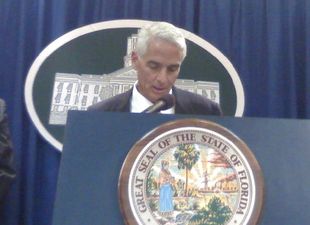 | | GOVERNOR CRIST ANNOUNCES SB 714 VETO |
A student of history, Crist took a page from former Governor Jeb Bush�s playbook. He vetoed the bill and ordered the Department of Business and Professional Regulations (DBPR) to study a retrofit�s cost impact on condos and coops. Hoping that the study would help justify his controversial veto, the Governor�s veto message also directed the DBPR�s Division of Florida Condominiums, Timeshares, and Mobile Homes (Division) to research any insurance cost reductions that he presumed were associated with these installations.
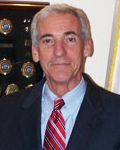 | DBPR SECRETARY
CHUCK DRAGO |
On September 28, 2009, DBPR Secretary Chuck Drago notified Governor Crist that his Department wrapped up their study. DBPR invited input from Florida�s fire service industry, condominium community advocacy organizations, the Office of the State Fire Marshal, the Office of Insurance Regulation, Citizens Property Insurance Company, fire sprinkler installers and representatives of insurance companies. Two participating association advocacy groups were the Community Advocacy Network (CAN) and the Community Association Leadership Lobby (CALL). The Community Advocacy Network (CAN) represents 2500 associations and is headed by Donna Berger, an association attorney with Katzman Garfinkel Rosenbaum. Berger also originally initiated the Community Association Leadership Lobby while employed by Becker Poliakoff - which represents approximately 4,500 condominium associations. When she left for Katzman Garfinkel Rosenbaum and started CAN, Yeline Goin and David G. Muller succeeded Berger as CALL�s Co-Directors. Also testifying on behalf of cash-strapped condos and coops was Harry Charles, President Emeritus of the Space Coast Communities Association, an umbrella organization with 269 member associations on central Florida�s east coast.
 Based upon a DBPR database review of condominium construction dates, the Division learned that of the 5600 projects affected by the mandated retrofit, only a handful had already complied. The database demonstrated the costs attendant to the two prospective installation options - a full sprinkler retrofit and the partial retrofit (AKA the �Minimum Alternative Life Safety System�) � varied widely, ranging from $503 per unit to $8633 per unit. While impacted by a structure�s layout, material construction, existing standpipe locations, and other structural factors, costs depended primarily on whether the water lines were simply dropped from the ceiling as exemplified by low-income public housing, or effectively hidden to meet the association�s aesthetic objectives. It is highly unlikely that Galt Mile associations will tolerate the exposed pipes that earmark the more modest estimates. Based upon a DBPR database review of condominium construction dates, the Division learned that of the 5600 projects affected by the mandated retrofit, only a handful had already complied. The database demonstrated the costs attendant to the two prospective installation options - a full sprinkler retrofit and the partial retrofit (AKA the �Minimum Alternative Life Safety System�) � varied widely, ranging from $503 per unit to $8633 per unit. While impacted by a structure�s layout, material construction, existing standpipe locations, and other structural factors, costs depended primarily on whether the water lines were simply dropped from the ceiling as exemplified by low-income public housing, or effectively hidden to meet the association�s aesthetic objectives. It is highly unlikely that Galt Mile associations will tolerate the exposed pipes that earmark the more modest estimates.
 | | CAN DIRECTOR DONNA BERGER |
CALL Co-Director Yeline Goin wasn�t surprised by the sparse association participation, stating �Many associations are taking a wait and see approach, hoping the Legislature will provide relief by extending the date or removing the requirement altogether.� The primary reason for this resistance is the cost. CAN Executive Director Donna Berger agreed that retrofit costs are the limiting factor, noting �Many associations have held off retrofitting because they simply do not have the funds to do so," citing foreclosures as having constricted the fiscal capabilities of many associations.
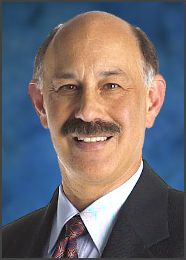 | | GARY POLIAKOFF |
In a letter he wrote to the Governor blasting the advice Crist received prompting a veto of SB 714, Condo Attorney Gary A. Poliakoff asked, �With all due respect, exactly who did your advisors assume will be forced to pay the special assessments to retrofit a condominium where 40 percent to 50 percent of the units are in default in payment of their assessments, or in mortgage foreclosure?�
 | | CALL CO-DIRECTORS YELINE GOIN AND DAVID MULLER |
Pursuing Crist�s strategy ofsoftening public reaction to the prohibitive cost, DBPR hoped Citizens Insurance and the Office of Insurance Regulation would demonstrate that retrofitted buildings would realize an offsetting savings in insurance premiums. Citizens reported that �A 5% sprinkler credit is applied if a building is fully sprinklered and the ISO (Insurance Services Office), a leading provider of information about property and liability risk, confirms the building has an approved sprinkler system.� A condominium with sprinklers in the common areas only (one of the two legal options) may or may not realize any benefit, depending in part on whether they are rated specifically or as a class by ISO. Since specific rates are based on the individual risk characteristics of a building (construction, layout, materials, occupancy, protection, exposure, etc.), prospective reductions are arbitrary at best � depending primarily on the innate altruism of the insurance actuary. If rated as component to a construction class, they would be summarily rejected.
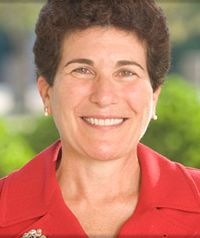 | FORMER DEPUTY INSURANCE
COMMISSIONER LISA MILLER |
However, when insurance carriers granted reductions for Florida associations fully retrofitted with fire sprinklers, the price impact on their overall policies was insignificant because the discounts applied only to the modest �all other perils� portion of their property and casualty policies, not the expensive windstorm portion. After confirming that the 5% premium discount described by Citizens is negligible since it applies only to the �all other perils� portion of an insurance policy, former Deputy Insurance Commissioner Lisa Miller added �An ISO considers a building that is partially sprinklered the same as a building without sprinklers, from a rating perspective.� As a result, ISO will recommend that partially retrofitted Associations receive no discount and fully sprinklered buildings see a small break on their minor multi-peril costs. Additionally, since heeding the advice of ISO is voluntary, subject to the proprietary policies of individual insurance companies, carriers perceiving a captive clientele will be predisposed to blowing off any reduction.
 Having failed to provide the cost offsets sought by the Governor, the Division segued to three conclusions and recommendations that supposedly facilitate compliance, starting with an alternative explanation for the perfunctory posture of associations confronted by the retrofit deadline. In the report�s Executive Summary, the DBPR frames how association budgeting practices affect any decision to retrofit by explaining, �Inherently focused on the challenges of the present, a mandate five (5) years from now for many associations likely appears to be in the distant future. Further, considering that in five years, with two year staggered terms, an association�s board could be entirely different than the membership elected this winter. Addressing a mandate not realized until five (5) years from now is likely a lesser priority than the challenges of today�most notably collecting regular assessments and addressing a significant wave of foreclosures.� The Division ultimately defines the stumbling block, �Under the circumstances, the prospect of adding any additional costs for most associations would be difficult to propose, and perhaps result in a recall of the association�s board.� Having failed to provide the cost offsets sought by the Governor, the Division segued to three conclusions and recommendations that supposedly facilitate compliance, starting with an alternative explanation for the perfunctory posture of associations confronted by the retrofit deadline. In the report�s Executive Summary, the DBPR frames how association budgeting practices affect any decision to retrofit by explaining, �Inherently focused on the challenges of the present, a mandate five (5) years from now for many associations likely appears to be in the distant future. Further, considering that in five years, with two year staggered terms, an association�s board could be entirely different than the membership elected this winter. Addressing a mandate not realized until five (5) years from now is likely a lesser priority than the challenges of today�most notably collecting regular assessments and addressing a significant wave of foreclosures.� The Division ultimately defines the stumbling block, �Under the circumstances, the prospect of adding any additional costs for most associations would be difficult to propose, and perhaps result in a recall of the association�s board.�
 To cure this obstacle, the Division enigmatically recommends, �Over the next five (5) years the Division via inserts in the billing statements, educational presentations, and electronic communication, will significantly increase awareness of the impending sprinkler retrofit mandate.� Having admitted that despite awareness of the mandate, association boards are unavoidably preoccupied with financial survival, how does sending an insert in the annual billing statement and email reminders that the deadline is approaching resolve an association�s fiscal constraints? Perhaps when a board announces that the building�s water is being shut off to save up for a sprinkler head in every unit foyer, they can simultaneously distribute copies of those inserts and emails to their members. Strike one. To cure this obstacle, the Division enigmatically recommends, �Over the next five (5) years the Division via inserts in the billing statements, educational presentations, and electronic communication, will significantly increase awareness of the impending sprinkler retrofit mandate.� Having admitted that despite awareness of the mandate, association boards are unavoidably preoccupied with financial survival, how does sending an insert in the annual billing statement and email reminders that the deadline is approaching resolve an association�s fiscal constraints? Perhaps when a board announces that the building�s water is being shut off to save up for a sprinkler head in every unit foyer, they can simultaneously distribute copies of those inserts and emails to their members. Strike one.
 Secondly, the Division concludes �that installation costs vary depending on multiple factors including the initial condition of the association�s standpipe, the type of installation performed (common areas only or common areas and units), and any aesthetic considerations the association may want to incorporate into the existing d�cor.� Secondly, the Division concludes �that installation costs vary depending on multiple factors including the initial condition of the association�s standpipe, the type of installation performed (common areas only or common areas and units), and any aesthetic considerations the association may want to incorporate into the existing d�cor.�
 Admonishing that �Multiple variables impact the costs of installing a fire sprinkler system and understanding that the statute provides an alternative to a fire sprinkler system in the form of an �other engineered lifesafety system�,� the Division recommends that �best management practices for condominium associations retrofitting with a fire sprinkler system should be established as associations consider their options.� Basically, if you can�t cough up the money to bury the pipes, acclimate to the prospect of living in a tenement. Strike two. Admonishing that �Multiple variables impact the costs of installing a fire sprinkler system and understanding that the statute provides an alternative to a fire sprinkler system in the form of an �other engineered lifesafety system�,� the Division recommends that �best management practices for condominium associations retrofitting with a fire sprinkler system should be established as associations consider their options.� Basically, if you can�t cough up the money to bury the pipes, acclimate to the prospect of living in a tenement. Strike two.
 While the first two recommendations rise to the level of tepid drivel, the third effort offers the illusion of merit. Spotlighting the insurance industry�s refusal to confer any rate benefit for installing the less expensive partial sprinkler system, the DBPR suggests that �The Legislature may wish to address the uncertainty of a premium discount when associations opt to install sprinklers in the common areas only.� Every scrap of testimony supports that premium discounts for partial installations are hardly �uncertain�, they are nonexistent. While the first two recommendations rise to the level of tepid drivel, the third effort offers the illusion of merit. Spotlighting the insurance industry�s refusal to confer any rate benefit for installing the less expensive partial sprinkler system, the DBPR suggests that �The Legislature may wish to address the uncertainty of a premium discount when associations opt to install sprinklers in the common areas only.� Every scrap of testimony supports that premium discounts for partial installations are hardly �uncertain�, they are nonexistent.
 The DBPR acknowledges that �if a fire sprinkler system has been installed in accordance with nationally accepted fire sprinkler design standards adopted by the Office of Insurance Regulation and if the fire sprinkler system is maintained within nationally accepted standards, Chapter 627.0654, Florida Statutes, mandates a premium discount.� Since the �Minimum Alternative Life Safety System� provided for in Chapter 718.112(2)(l) of the Florida Statutes doesn�t rise to the standard described in Chapter 627.0654, the DBPR suggests �the Legislature may want to harmonize the two chapters,� hopefully providing a modicum of relief for associations installing fire sprinklers only in the common areas. The DBPR acknowledges that �if a fire sprinkler system has been installed in accordance with nationally accepted fire sprinkler design standards adopted by the Office of Insurance Regulation and if the fire sprinkler system is maintained within nationally accepted standards, Chapter 627.0654, Florida Statutes, mandates a premium discount.� Since the �Minimum Alternative Life Safety System� provided for in Chapter 718.112(2)(l) of the Florida Statutes doesn�t rise to the standard described in Chapter 627.0654, the DBPR suggests �the Legislature may want to harmonize the two chapters,� hopefully providing a modicum of relief for associations installing fire sprinklers only in the common areas.
 Two adamantine obstacles burden the DBPR�s proposition. Unless the rate reduction targeted by their recommendation can be applied to the overall insurance premium and not just the anorectic multi-peril portion of the association�s policy, it will never serve as anything more than a shallow public relations gesture. Secondly, since the State is still desperately trying to lure admitted carriers back to Florida�s largely abandoned property & casualty market (despite a 28% rate increase, State Farm is dropping 800,000 property policies and hitting the road), prospects for such costly legislation surviving industry opposition are reasonably comparable to those of a snowball in hell. Two adamantine obstacles burden the DBPR�s proposition. Unless the rate reduction targeted by their recommendation can be applied to the overall insurance premium and not just the anorectic multi-peril portion of the association�s policy, it will never serve as anything more than a shallow public relations gesture. Secondly, since the State is still desperately trying to lure admitted carriers back to Florida�s largely abandoned property & casualty market (despite a 28% rate increase, State Farm is dropping 800,000 property policies and hitting the road), prospects for such costly legislation surviving industry opposition are reasonably comparable to those of a snowball in hell.
 | SEN GELLER, REP SEILER, GOV CHARLIE CRIST, SPEAKER
RUBIO AND SEN JEFF ATWATER PASS INSURANCE BILL |
On January 16, 2007, Governor Charlie Crist�s new Administration prompted Senate President Ken Pruitt and Statehouse Speaker Marco Rubio to convene a special legislative session on property insurance. Despite the Governor�s pre-Election Day campaign promises of premium relief for homeowners and significant progress toward re-establishing a competitive insurance environment, the lawmakers were unilaterally stonewalled by the well-organized insurance industry. If not for Jeff Atwater�s eleventh hour reshuffling of Citizens� policy mission from safety net to full-service carrier and the temporary postponement of two scheduled statewide Citizens assessments, the Governor would have come away empty handed. In exchange for these face-saving concessions, the State had to loosen the CAT fund�s purse strings, adding $12 billion to the existing $16 billion in below market reinsurance for carriers (wholly underwritten by taxpayers) with the caveat that the savings be passed to ratepayers. The session produced an 8% premium discount on the heels of a 300% increase.
 | GOVERNOR CRIST AND COMMISSIONER
MCCARTY ANNOUNCE ALLSTATE SUBPOENAS |
At Senatorial insurance hearings a few months later, when executives in Allstate�s Florida �dummy� corporations (Allstate Floridian Insurance Co., Allstate Floridian Indemnity Co., etc.) were subpoenaed to explain the evidentiary documentation for a requested 41.9% rate increase, they openly admitted to drawing on relationships with insurance trade associations, insurance rating organizations, affiliated reinsurers and risk modeling companies to �reverse engineer� support for hiking rates. Since more than 33% of Florida�s rated carriers had requested similarly outrageous increases despite experiencing lower costs, the hearings had dramatically outed bald-faced non-compliance with the year-old Statute. After receiving a slap on the wrist, some carriers accepted more modest rate increases although most skipped town, abandoning the Florida property insurance market. It is highly unlikely that this same insurance lobby will suddenly succumb to legislative pressure and pass out discounts. You do the math. Strike three.
 In summary, two of the three recommendations restate and then ignore the problem. Having established that associations can ill afford to pass $billions to the fire sprinkler industry, DBPR will pointlessly send out emails to remind association boards that the deadline is 2014 and more emails to remind them that they can choose between a full or partial retrofit. The third recommendation is an unfunded excursion to Fantasy Island. Notwithstanding, the report provides ample political distraction for the Governor to spin this as a serious treatment of the issues at campaign events. In summary, two of the three recommendations restate and then ignore the problem. Having established that associations can ill afford to pass $billions to the fire sprinkler industry, DBPR will pointlessly send out emails to remind association boards that the deadline is 2014 and more emails to remind them that they can choose between a full or partial retrofit. The third recommendation is an unfunded excursion to Fantasy Island. Notwithstanding, the report provides ample political distraction for the Governor to spin this as a serious treatment of the issues at campaign events.
 If a special legislative session is convened to ratify a controversial tribal gaming agreement, an SB 714 veto reversal is possible. Don�t hold your breath. It appears that we will have to endure another legislative gauntlet before realizing relief from this big time payday for plumbing contractors and sprinkler distributers. At least the next Governor will not be able to rationalize another veto by claiming the absence of a condo cost impact study. Welcome to Florida! If a special legislative session is convened to ratify a controversial tribal gaming agreement, an SB 714 veto reversal is possible. Don�t hold your breath. It appears that we will have to endure another legislative gauntlet before realizing relief from this big time payday for plumbing contractors and sprinkler distributers. At least the next Governor will not be able to rationalize another veto by claiming the absence of a condo cost impact study. Welcome to Florida!
Related Links

 If you would like to let Governor Crist know that his veto of SB 714 was ill advised, click the following email link: [email protected]. If you would like to let Governor Crist know that his veto of SB 714 was ill advised, click the following email link: [email protected].
Click To Top of Page
Rep. Bogdanoff�s Autumn Newsletter
  
Representative Ellyn Bogdanoff, District 91

 | REPRESENTATIVE
ELLYN BOGDANOFF |
September 18, 2009 -  In late 2003, fate handed former District 91 Statehouse Representative Connie Mack IV an opportunity to expedite his planned pursuit of political stardom. When President George W. Bush appointed District 14 Congressman Porter Goss to head the Central Intelligence Agency, Mack closed up shop in Fort Lauderdale and elbowed his way to the empty Congressional seat in Fort Myers, where Mack grew up. Despite being outgunned in name recognition and political support by most of the 6 other candidates for Mack�s vacated House seat, Ellyn Bogdanoff eked out a 12-vote margin of victory, slipping by 8-year Lauderdale-by-the-Sea Mayor Oliver Parker in the January 6, 2004 Special Election. Within two years, the neophyte rookie blossomed into a Statehouse anchor, squaring out a formidable reputation for unrelenting tenacity, fiscal diligence, natural networking skills and a disarming facility for achieving consensus. Few of her Tallahassee peers were surprised when Statehouse Speaker Marco Rubio named Ellyn as his Majority Whip, wherein she shepherded through the Statehouse every major component of Governor Crist's property insurance and tax program. She also singlehandedly revamped and rescued the State�s broken No-Fault insurance legislation just days before its intended dissolution would have burdened every vehicle owner with an additional insurance expense. In late 2003, fate handed former District 91 Statehouse Representative Connie Mack IV an opportunity to expedite his planned pursuit of political stardom. When President George W. Bush appointed District 14 Congressman Porter Goss to head the Central Intelligence Agency, Mack closed up shop in Fort Lauderdale and elbowed his way to the empty Congressional seat in Fort Myers, where Mack grew up. Despite being outgunned in name recognition and political support by most of the 6 other candidates for Mack�s vacated House seat, Ellyn Bogdanoff eked out a 12-vote margin of victory, slipping by 8-year Lauderdale-by-the-Sea Mayor Oliver Parker in the January 6, 2004 Special Election. Within two years, the neophyte rookie blossomed into a Statehouse anchor, squaring out a formidable reputation for unrelenting tenacity, fiscal diligence, natural networking skills and a disarming facility for achieving consensus. Few of her Tallahassee peers were surprised when Statehouse Speaker Marco Rubio named Ellyn as his Majority Whip, wherein she shepherded through the Statehouse every major component of Governor Crist's property insurance and tax program. She also singlehandedly revamped and rescued the State�s broken No-Fault insurance legislation just days before its intended dissolution would have burdened every vehicle owner with an additional insurance expense.
 | | HOUSE SPEAKER LARRY CRETUL |
When lawmakers confronted last session�s intimidating $6 billion budgetary shortfall, the Statehouse leadership again summoned Representative Bogdanoff, installing her as Chair of the Finance and Tax Council and Vice Chair of the Rules & Calendar Council - the legislative gatekeeper. In August, House Speaker Larry Cretul asked Florida Tax Watch and concerned legislators to research as yet unexplored cost-cutting measures in preparation for another recessionary budget. Cretul exclaimed �We need to identify efficiencies, where they can be found, maybe some systemic and process changes. I know it�s a high-altitude description, but that�s on our radar screen. I�m going to ask Representative Bogdanoff to be very involved.� When Senate President Jeffrey Atwater threw his hat into the ring for CFO Alex Sink�s job, Ellyn concomitantly targeted Jeff�s District 25 Senate seat. Given the significant political capital she�s amassed in her brief but meteoric legislative career, other prospective candidates will be hard pressed to convince voters that they are better positioned to represent district interests than Bogdanoff.
 In her Autumn Newsletter, Bogdanoff describes some of the challenges undertaken during the 2009 legislative session and measures their success from several objective perspectives. One such outlook heralds from the American Legislative Exchange Conference, a 501(c)3 non-profit organization committed to �Jeffersonian principles of free markets, limited government, federalism, and individual liberty.� In a report entitled �State Winners and Losers�, the ALEC measures 15 policy variables that have a proven impact on the migration of capital � both investment capital and human capital � into and out of states. Explaining that the 15 factors are influenced directly by state lawmakers through the legislative process, they are 1) Highest Marginal Personal Income Tax Rate, 2) Highest Marginal Corporate Income Tax Rate, 3) Personal Income Tax Progressivity, 4) Property Tax Burden, 5) Sales Tax Burden, 6) Tax Burden From All Remaining Taxes, 7) Estate Tax/Inheritance Tax (Yes or No), 8) Recent Tax Policy Changes 2007-08, 9) Debt Service as a Share of Tax Revenue, 10) Public Employees Per 1,000 Residents, 11) Quality of State Legal System, 12) State Minimum Wage, 13) Workers� Compensation Costs, 14) Right-to-Work State (Yes or No) and 15) Tax or Expenditure Limit. In stark contrast with the waves of ominous decline that emanate daily from virtually every media source, the study concludes that the State�s 2009 legislative changes have improved its economic outlook, moving Florida�s national rank from number 16 to number 11 out of 50. In essence, the report summarizes how people will essentially flood from the Northeast into the rest of the country, motivated by the prospect of �living better for less.� In her Autumn Newsletter, Bogdanoff describes some of the challenges undertaken during the 2009 legislative session and measures their success from several objective perspectives. One such outlook heralds from the American Legislative Exchange Conference, a 501(c)3 non-profit organization committed to �Jeffersonian principles of free markets, limited government, federalism, and individual liberty.� In a report entitled �State Winners and Losers�, the ALEC measures 15 policy variables that have a proven impact on the migration of capital � both investment capital and human capital � into and out of states. Explaining that the 15 factors are influenced directly by state lawmakers through the legislative process, they are 1) Highest Marginal Personal Income Tax Rate, 2) Highest Marginal Corporate Income Tax Rate, 3) Personal Income Tax Progressivity, 4) Property Tax Burden, 5) Sales Tax Burden, 6) Tax Burden From All Remaining Taxes, 7) Estate Tax/Inheritance Tax (Yes or No), 8) Recent Tax Policy Changes 2007-08, 9) Debt Service as a Share of Tax Revenue, 10) Public Employees Per 1,000 Residents, 11) Quality of State Legal System, 12) State Minimum Wage, 13) Workers� Compensation Costs, 14) Right-to-Work State (Yes or No) and 15) Tax or Expenditure Limit. In stark contrast with the waves of ominous decline that emanate daily from virtually every media source, the study concludes that the State�s 2009 legislative changes have improved its economic outlook, moving Florida�s national rank from number 16 to number 11 out of 50. In essence, the report summarizes how people will essentially flood from the Northeast into the rest of the country, motivated by the prospect of �living better for less.�
 | BROWARD SCHOOL BOARD BLEW 100s OF $MILLIONS
ON 10s OF THOUSANDS OF EMPTY CLASSROOMS |
Bogdanoff casts this year�s increase in Florida sales tax revenues as an economic indicator, supporting her contention that Floridians are spending more and tourism continues to flourish. Transitioning to a subject in which Bogdanoff has long nourished an emotional investment, she reviews the boost to education inherent in the State budget. Her admonition that how the money is spent is as important as the amount made available should touch a nerve in Broward residents. Having learned that their school board cycled out hundreds of $millions for the construction of tens of thousands of new classrooms in districts where they can�t fill the existing classrooms, Broward taxpayers are rightfully leery about placing more money into the system before the political rat�s nest undergoes a thorough housecleaning.
 Local scandals aside, Ellyn takes pride in the findings of a meritorious scholastic evaluation by Education Week magazine, which makes reference to the remarkable qualitative enhancement of education in Florida. Over the past three years, the State�s national educational ranking in the journal�s �The 50 State Report Card� improved from number 31 to number 10. Bogdanoff acknowledges the painful adjustments that remain and the need to fuel job growth, given the State�s painful 10.7% unemployment rate. Characterizing local input as the centerpiece of her legislative policies, our Statehouse Representative invites constituents to sign on for legislative email updates. Read On! - [editor] Local scandals aside, Ellyn takes pride in the findings of a meritorious scholastic evaluation by Education Week magazine, which makes reference to the remarkable qualitative enhancement of education in Florida. Over the past three years, the State�s national educational ranking in the journal�s �The 50 State Report Card� improved from number 31 to number 10. Bogdanoff acknowledges the painful adjustments that remain and the need to fuel job growth, given the State�s painful 10.7% unemployment rate. Characterizing local input as the centerpiece of her legislative policies, our Statehouse Representative invites constituents to sign on for legislative email updates. Read On! - [editor] 

Economy & Education

�Dear Neighbor:
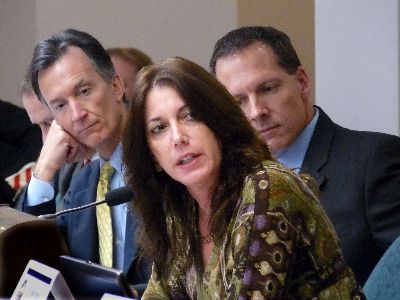 | | ELLYN - FINANCE AND TAX COUNCIL |
This has been a difficult budget year. Starting with a 6 billion dollar shortfall, we took a measured approach that protected our core priorities and worked to reduce government spending. As the Chair of the Finance and Tax Council, I also believe that it was imperative that we considered the long-term best interests of the state�s financial future.
 By holding government to the same standard as hard-working families and businesses that are required to live within their means each month, we put ourselves on the right path to significantly improving our state�s economy. By holding government to the same standard as hard-working families and businesses that are required to live within their means each month, we put ourselves on the right path to significantly improving our state�s economy.
 | RI GOV DON CARCIERI ANNOUNCES
12-DAY STATE SHUT-DOWN |
As challenging as this budget was, not all states did as well as Florida. Twenty states are now considering furloughing workers or shutting down government offices, including Rhode Island, which will shut down state government for 12 days in the hopes of balancing their state budget. The situation in Rhode Island could easily have happened in Florida if we didn�t make the difficult decisions that enable Florida to maintain government services and will help create a stable financial environment for our economy to rebound.
 The American Legislative Exchange Conference ranks State Economic Outlook each year based on 15 variables such as tax burden, debt service, and corporate tax rates. Due to actions that we took to lower taxes and attract industry, Florida has improved our outlook in 2009 from 16 to 11, out of 50. The American Legislative Exchange Conference ranks State Economic Outlook each year based on 15 variables such as tax burden, debt service, and corporate tax rates. Due to actions that we took to lower taxes and attract industry, Florida has improved our outlook in 2009 from 16 to 11, out of 50.
 Because we have required a pay as you go model, Florida has not promised public employees retirement benefits that we can�t possibly pay for. In fact, Florida is among a small handful of states that has more equity then liabilities in their pension plans at the time of the last report. Because we have required a pay as you go model, Florida has not promised public employees retirement benefits that we can�t possibly pay for. In fact, Florida is among a small handful of states that has more equity then liabilities in their pension plans at the time of the last report.
 Sales tax collections for the last quarter of the past fiscal year are slightly ahead of estimates, and August collections, which are still being counted, appear to be over estimate by more than $30 million. This means that Floridians are spending more money, and more tourists are coming to visit Florida. Sales tax collections for the last quarter of the past fiscal year are slightly ahead of estimates, and August collections, which are still being counted, appear to be over estimate by more than $30 million. This means that Floridians are spending more money, and more tourists are coming to visit Florida.
 Finally, the budget for the current year continues to place a priority on classroom spending and making sure Florida�s children receive a world-class education. Crafting an education budget with limited state resources was challenging, and the House and Senate responded to this challenge by prioritizing education spending, responsibly utilizing federal funds to lessen the impact of our budget shortfall on education spending and giving school districts increased budgeting flexibility. Finally, the budget for the current year continues to place a priority on classroom spending and making sure Florida�s children receive a world-class education. Crafting an education budget with limited state resources was challenging, and the House and Senate responded to this challenge by prioritizing education spending, responsibly utilizing federal funds to lessen the impact of our budget shortfall on education spending and giving school districts increased budgeting flexibility.
 The budget for the current fiscal year raises per-student funding by $32 to a statewide average of $6877. With this year�s increase in per-student funding, we will have increased funding for K-12 students by over 43%, or over $2070 per-student, over the past ten years. The average per-student increase over the past ten years is over $207 per-student, per-year. The budget for the current fiscal year raises per-student funding by $32 to a statewide average of $6877. With this year�s increase in per-student funding, we will have increased funding for K-12 students by over 43%, or over $2070 per-student, over the past ten years. The average per-student increase over the past ten years is over $207 per-student, per-year.
 Also, to provide additional funds for education during these challenging economic times, the Legislature transferred funding that has been previously designated for capital costs to be used for operating costs and giving school districts flexibility to move those funds back to capital expenditures if needed for debt service payment or urgent construction needs. Also, to provide additional funds for education during these challenging economic times, the Legislature transferred funding that has been previously designated for capital costs to be used for operating costs and giving school districts flexibility to move those funds back to capital expenditures if needed for debt service payment or urgent construction needs.
Our efforts are working because it is not only how much we spend that matters, but how we spend it.
 In January, Florida was ranked 10th in the nation by Education Week in its annual report card ranking education quality for the 50 states. The rankings, based largely on six categories, including school finance, achievement, the teaching profession, standards, assessments and accountability, showed that over the last three years, Florida has risen from number 31 to number 10 in education quality. In January, Florida was ranked 10th in the nation by Education Week in its annual report card ranking education quality for the 50 states. The rankings, based largely on six categories, including school finance, achievement, the teaching profession, standards, assessments and accountability, showed that over the last three years, Florida has risen from number 31 to number 10 in education quality.
 No doubt we are moving in the right direction, but there is always room for improvement. Our budget will continue to be a challenge over the next two years. This Session, I will be focused on reducing government spending without compromising our core priorities and establishing tax policies that will allow businesses to thrive so that we increase the number of jobs available to our citizens. With a 10 percent (plus) unemployment rate this is a critical goal. No doubt we are moving in the right direction, but there is always room for improvement. Our budget will continue to be a challenge over the next two years. This Session, I will be focused on reducing government spending without compromising our core priorities and establishing tax policies that will allow businesses to thrive so that we increase the number of jobs available to our citizens. With a 10 percent (plus) unemployment rate this is a critical goal.
 Your ideas have been invaluable to solving the challenges our state faces, and your perspective continues to shape our agenda. We are on the right path. A path that many people expect government to always be on; which is how do we provide the services to the citizens of this state faster, better, and cheaper. Your ideas have been invaluable to solving the challenges our state faces, and your perspective continues to shape our agenda. We are on the right path. A path that many people expect government to always be on; which is how do we provide the services to the citizens of this state faster, better, and cheaper.
 Please stay in touch and email me anytime at [email protected]. If you would like me to add you to my email list and receive weekly updates from the Capitol, please let me know by emailing me at [email protected] or by calling our office. Thank you for your continued support and for allowing me to serve as your representative in the Florida House. Please stay in touch and email me anytime at [email protected]. If you would like me to add you to my email list and receive weekly updates from the Capitol, please let me know by emailing me at [email protected] or by calling our office. Thank you for your continued support and for allowing me to serve as your representative in the Florida House.
Until next time,�

Ellyn Bogdanoff
Majority Whip
Florida House of Representatives � District 91
 FYI FYI
 - To accept Representative Bogdanoff�s invitation to �stay in touch and email me anytime �, email her at [email protected] or [email protected] OR call (954) 762-3757 to reach her locally (1421 South Andrews Avenue, Fort Lauderdale, FL 33316) or call her in Tallahassee at (850) 488-0635. - To accept Representative Bogdanoff�s invitation to �stay in touch and email me anytime �, email her at [email protected] or [email protected] OR call (954) 762-3757 to reach her locally (1421 South Andrews Avenue, Fort Lauderdale, FL 33316) or call her in Tallahassee at (850) 488-0635.
Click To Top of Page
Courts Break Back of Shadow Rentals
  
Blanket Receiver Puts Associations Back in Business

 August 7, 2009 - Condo Associations across the State are suffering from plugged cash flow stemming from an epidemic of unit owner defaults. While �too-good-to-be-true� mortgages attracted home buyers representing every segment of the society, an inordinately large number of toxic mortgage defaults inure to speculators, amateur as well as professional. As the recessionary black hole widened, unit owners were confronted with special assessments for the express purpose of making up their association�s collection shortfalls. August 7, 2009 - Condo Associations across the State are suffering from plugged cash flow stemming from an epidemic of unit owner defaults. While �too-good-to-be-true� mortgages attracted home buyers representing every segment of the society, an inordinately large number of toxic mortgage defaults inure to speculators, amateur as well as professional. As the recessionary black hole widened, unit owners were confronted with special assessments for the express purpose of making up their association�s collection shortfalls.
 | | SENATOR MIKE FASANO |
During the 2009 regular legislative session, Tallahassee experienced the immense thumbprint wielded by the banking lobby. By delaying assumption of title, banks forestall assessment obligations to the association for foreclosed units, forcing the other unit owners to pay the bank�s share. Although thousands of associations pleaded for legislative relief from the banking industry�s dilatory foreclosure strategy, House and Senate leaders warned lawmakers that any bill threatening banks with additional costs will suffer an inauspicious death on the calendar. Following the announcement, several fast-moving, popular bills became MIAs.
 | | SENATOR JEREMY RING |
Senator Mike Fasano, a Republican from New Port Richey, filed Senate Bill 880 (SB 880), extending lender liability to the lesser of 12 months of past due fees and special assessments or 20 percent of the mortgage amount if payment to the association is made within 30 days of taking title. The cap would vanish after the 30-day deadline. Senator Jeremy Ring, a Parkland Democrat, filed Senate Bill 998 (SB 998), requiring lenders to take title on investor-owned units within 12 months of filing foreclosure, with no penalty for that year of engineered delay. As the session progressed, at least a dozen other bills providing similar relief options were folded into the major filings best positioned for passage.
 | J. THOMAS CARDWELL - FLA
BANKERS ASSN COUNSEL |
In a monument to contradiction, after first exclaiming that he hadn�t seen any evidence of bank delays in taking title, general counsel J. Thomas Cardwell of the Florida Bankers Association wagged the dog, enumerating several reasons for the �nonexistent� delays. Cardwell said �Lenders are only trying to help keep homeowners in their properties,� asserting that the foreclosure foot-dragging is simply the industry�s way of actualizing altruistic foreclosure moratoriums. He also blamed homeowners for mounting time-consuming defenses that bogged down the court system with capricious filings.
 Contending that the relief bills were squelched to benefit Condominium owners, Cardwell stated �These bills could severely damage the ability to obtain financing on condos, and because of that, would do much more damage to condos and condo associations than they would do good.� Mid-way through the session, after the bills had clearly gained sufficient support and momentum for passage, bank lobbyists handed legislative leaders a non-negotiable ultimatum. The industry threatened to hike interest rates on Florida condo loans or stop writing condo mortgages altogether if changes were made to the current law. Overnight � and despite its penalty-free construction � Ring�s bill withered and died. Since lenders were unprepared to risk losing any amount incremental to losses already incurred through foreclosure, Fasano�s bill also bit the dust. Contending that the relief bills were squelched to benefit Condominium owners, Cardwell stated �These bills could severely damage the ability to obtain financing on condos, and because of that, would do much more damage to condos and condo associations than they would do good.� Mid-way through the session, after the bills had clearly gained sufficient support and momentum for passage, bank lobbyists handed legislative leaders a non-negotiable ultimatum. The industry threatened to hike interest rates on Florida condo loans or stop writing condo mortgages altogether if changes were made to the current law. Overnight � and despite its penalty-free construction � Ring�s bill withered and died. Since lenders were unprepared to risk losing any amount incremental to losses already incurred through foreclosure, Fasano�s bill also bit the dust.
 Although the banking lobby has thus far successfully thwarted legislation forcing banks to expeditiously execute foreclosures and assume their statutory assessment obligations, the courts have recently provided associations with some sorely needed relief. When the Real Estate slot machine stopped paying off, and units lost any marketing semblance to hotcakes, overextended investors desperately sought alternatives to a speculative implosion. Hundreds of thousands of units were stuffed into the rental market. Some were placed there by investors hoping to weather the recession until Real Estate values moderated. The rental market also became an interim repository for units mired in �short sale� delays, wherein banks often stretch closings from six months to a year � or longer. Although the banking lobby has thus far successfully thwarted legislation forcing banks to expeditiously execute foreclosures and assume their statutory assessment obligations, the courts have recently provided associations with some sorely needed relief. When the Real Estate slot machine stopped paying off, and units lost any marketing semblance to hotcakes, overextended investors desperately sought alternatives to a speculative implosion. Hundreds of thousands of units were stuffed into the rental market. Some were placed there by investors hoping to weather the recession until Real Estate values moderated. The rental market also became an interim repository for units mired in �short sale� delays, wherein banks often stretch closings from six months to a year � or longer.
 The resulting patchwork quilt of unit rentals has fostered a virtual underground economy with $millions changing hands every month. Speculators who have stopped paying their mortgages and association fees often continue to pocket rental income while awaiting either the bank axe or a buyer. Unfortunately, the association is legally an impotent frustrated witness to these black market-style transactions. Understandably angry unit owners are forced to subsidize units in various stages of foreclosure while watching their delinquent neighbors continue to collect rent. Depending on the number of non-contributing units in each association, the impact on members ranges from moderate fiscal strain to utter devastation. Many of the local associations en route to insolvency from ballooning foreclosure rates could be salvaged by recapturing the cash fueling these non-contributing rental agreements. The resulting patchwork quilt of unit rentals has fostered a virtual underground economy with $millions changing hands every month. Speculators who have stopped paying their mortgages and association fees often continue to pocket rental income while awaiting either the bank axe or a buyer. Unfortunately, the association is legally an impotent frustrated witness to these black market-style transactions. Understandably angry unit owners are forced to subsidize units in various stages of foreclosure while watching their delinquent neighbors continue to collect rent. Depending on the number of non-contributing units in each association, the impact on members ranges from moderate fiscal strain to utter devastation. Many of the local associations en route to insolvency from ballooning foreclosure rates could be salvaged by recapturing the cash fueling these non-contributing rental agreements.
 Chapter 718 of the Florida Statutes � The Condominium Act � provides for a modicum of relief, affording associations the right to apply for a court-appointed independent custodian empowered to collect rent directly from the tenants and disburse the condo fees as required. Section 718.116(6)(c), Florida Statutes, provides, in relevant part, as follows: �If the unit owner remains in possession of the unit after a foreclosure judgment has been entered, the court, in its discretion, may require the unit owner to pay a reasonable rental for the unit. If the unit is rented or leased during the pendency of the foreclosure action, the association is entitled to the appointment of a receiver to collect the rent. The expenses of the receiver shall be paid by the party which does not prevail in the foreclosure action.� Chapter 718 of the Florida Statutes � The Condominium Act � provides for a modicum of relief, affording associations the right to apply for a court-appointed independent custodian empowered to collect rent directly from the tenants and disburse the condo fees as required. Section 718.116(6)(c), Florida Statutes, provides, in relevant part, as follows: �If the unit owner remains in possession of the unit after a foreclosure judgment has been entered, the court, in its discretion, may require the unit owner to pay a reasonable rental for the unit. If the unit is rented or leased during the pendency of the foreclosure action, the association is entitled to the appointment of a receiver to collect the rent. The expenses of the receiver shall be paid by the party which does not prevail in the foreclosure action.�
 Until recently, two drawbacks deterred the law�s implementation. The process entails legal fees and court costs prerequisite to a resolution, further burdening the delinquent�s neighbors. If the association is plagued with many foreclosures, the cumulative legal costs could be prohibitive. Additionally, many of these short-term rental agreements stand to expire either during or shortly after the court proceedings yield a receiver. Until recently, two drawbacks deterred the law�s implementation. The process entails legal fees and court costs prerequisite to a resolution, further burdening the delinquent�s neighbors. If the association is plagued with many foreclosures, the cumulative legal costs could be prohibitive. Additionally, many of these short-term rental agreements stand to expire either during or shortly after the court proceedings yield a receiver.
 | MIAMI CIRCUIT COURT
JUDGE ELLEN LEESFIELD |
Threatened with increasing monthly deficits, The Oaks at Miami Gardens Condominium Association in Opa-locka retained the North Bay Village-based Association Law Group to seek a blanket receivership in a last ditch attempt to salvage the community�s fiscal viability. On March 23, 2009, lead attorney David C. Arnold filed an �Emergency Petition for Appointment of Receiver� in the Circuit Court of the Eleventh Judicial Circuit in Miami-Dade County. In a decision based on Arnold�s innovative interpretation of the statute as applicable to any number of units, Miami circuit court judge Ellen Leesfield approved one of the first requests for a blanket receivership, allowing a single, master receiver to collect rents for all association units in foreclosure. In approving Seth Heller of Heller & Company Inc. to act as �receiver for all the units�, the March 24th ruling enabled the association to access that shadow rental economy via a single court proceeding instead of filing separate actions for each delinquent unit.
 | | THE OAKS AT MIAMI GARDENS CONDO ASSOCIATION |
According to Association Manager Javier Lopez, The Oaks was running a 75% monthly shortfall, collecting only $3,000 of the $11,000 required to keep the wolf from the door. Only 22 of the 61 units were current in paying their assessments. �Trash hauler Choice Environmental noticed the association for their last pickup date. The water and electricity were in final default.� Having failed to correct violations uncovered during the annual statutory fire prevention and County health inspections, imposition of access restrictions by both the Fire and Health Departments were imminent.
 | ATTORNEY BEN SOLOMON
ASSOCIATION LAW GROUP |
Attorney Ben Solomon of the Association Law Group explained �Once the order came down, we made demand on all of the tenants in units under foreclosure by the association to pay the rent directly to a receiver, and that money comes directly into the association as an immediate income stream.� Illustrating the tactic�s palliative impact, Solomon said �After the receivership was ordered, they doubled their income to over $6,000 within 30 days. By the second month, they were getting back more than $11,000.�
 | ATTORNEY DAVID ARNOLD
ASSOCIATION LAW GROUP |
If provided for in its Condominium Documents, an association can collect rent directly from tenants without court participation, saving the attendant expense. Associations aspiring to subsequently add the provision by a vote by all the members are likely to encounter an obstacle. Since the problem is often a consequence of the association�s large number of investor-owned units, enlightened self-interest would prompt those speculators to vote against passage. Associations can also execute a three-party understanding, wherein the owner, renter and association agree that rental payments from the tenant go directly to the association, which addresses the delinquency and passes any balance to the owner.
 | | VILLAGE AT DADELAND CONDOMINIUM IN MIAMI |
Unfortunately, if unit owners and their tenants refuse participation in these or similar strategies and continue to exclude the association, despite mandates in the authorizing documents, the association can do little in response. Alternatively, a blanket receivership program can be enforced by the court, giving it teeth. Evasive unit owners who refuse to pay allocated shares of maintenance while collecting rent during the foreclosure process are compelled by court order to pay past due and current maintenance assessments and, in some cases, 12 months of accelerated maintenance assessments.
 | CHIEF JUDGE DAVID GERSTEN
3rd DIST. COURT OF APPEALS |
Since the March ruling, circuit courts in Miami-Dade and Broward counties have authorized 20 similar receiverships. A challenge to the ruling was filed on June 29, 2009, in the 3rd District Court of Appeals by a Village at Dadeland unit owner � Robert J. Wolfarth � who protested the appointment of a receiver on the grounds that he was not given proper notice. Motions filed by the Village at Dadeland Condominium Association allege that despite collecting rent on 17 units, Wolfarth stiffed the association for assessment fees, prompting the Village at Dadeland to file foreclosure proceedings. Attacking the Circuit Court�s interpretation of the statute that resulted in a blanket receivership, Wolfarth�s attorney (Sergio A. Pagliery of Shook, Hardy & Bacon L.L.P.) held that separate petitions for receiver should have been filed for each of their client�s delinquent units. On July 23rd, the Court unanimously denied Wolfarth�s Petition for a Writ of Prohibition. By upholding the original ruling, the Court paved the way for wider utilization of master receiverships by associations suffering from nonpaying landlords who lease their units. The legal validation finally allows associations to penetrate the furtive rental environment and relieve the incremental fiscal burden it places on the general membership.
 While this is clearly a no-brainer for communities predominated by investor-owners, it is also being productively implemented by associations with a more traditional membership composition. For those few Galt Mile associations with two or three delinquent member-landlords, the resulting deficit might be considered manageable. However, those with a half dozen or more leased units in various stages of foreclosure would increase monthly income by several thousand dollars via a blanket receiver. Once a master receivership is set up for a particular association, explains attorney David Arnold, �any unit that goes into foreclosure that has a renter in it is automatically included under the umbrella...on behalf of the association.� He neglected to mention that the Receiver is only empowered to collect funds for tenanted units against which a foreclosure was filed by the Association, not a bank or other lien holder. While this is clearly a no-brainer for communities predominated by investor-owners, it is also being productively implemented by associations with a more traditional membership composition. For those few Galt Mile associations with two or three delinquent member-landlords, the resulting deficit might be considered manageable. However, those with a half dozen or more leased units in various stages of foreclosure would increase monthly income by several thousand dollars via a blanket receiver. Once a master receivership is set up for a particular association, explains attorney David Arnold, �any unit that goes into foreclosure that has a renter in it is automatically included under the umbrella...on behalf of the association.� He neglected to mention that the Receiver is only empowered to collect funds for tenanted units against which a foreclosure was filed by the Association, not a bank or other lien holder.
 | | THE 3rd DISTRICT COURT OF APPEALS THROWS ASSOCIATIONS A LIFE PRESERVER |

Click To Top of Page
Florida Court Fixes First Amendment Flaw

Strikes Electioneering Communications Law

  | | SENATORS JOHN McCAIN AND RUSSELL FEINGOLD |
July 28, 2009 - Concerned by the growing perception that legislative seats were essentially commodities with price tags, in 2002 U.S. Senators Russell Feingold (D-WI) and John McCain (R-AZ) collaborated across the aisle to sponsor the Bipartisan Campaign Reform Act of 2002 (BCRA, McCain�Feingold Act, Pub.L. 107-155, 116 Stat. 81, enacted March 27, 2002). Effective as of November 6, 2002, this United States federal law amended the Federal Election Campaign Act of 1971, which regulates the financing of political campaigns. The Act was designed to address two issues.
 By prohibiting national political party committees from raising or spending any funds not subject to federal limits, the Act was anticipated to stigmatize the increased role of soft money in campaign financing, even for state and local races or issue discussion. Not surprisingly, a wide variety of unaccountable interest groups and PACs subsequently filled the finance vacuum created by the Act�s soft money deterrent. By prohibiting national political party committees from raising or spending any funds not subject to federal limits, the Act was anticipated to stigmatize the increased role of soft money in campaign financing, even for state and local races or issue discussion. Not surprisingly, a wide variety of unaccountable interest groups and PACs subsequently filled the finance vacuum created by the Act�s soft money deterrent.
 Seeking to stem the proliferation of issue advocacy ads, it defined any broadcast ads that name a federal candidate within 30 days of a primary or caucus, or 60 days of a general election, as �electioneering communications�. The Act prohibited payment for such ads either by corporations or by unincorporated entities using corporate or union funds. In debating the bill, Congress perfunctorily approved an amendment sponsored by the late Senator Paul Wellstone, (D-MN), that reconstituted the Act�s definition of �corporations� to include nonprofits. The prohibition against sponsoring ads therefore applies to non-profit issue advocacy organizations such as Right to Life, Save the Whales, Planned Parenthood, the American Heart Association or the Children�s Defense Fund. The law draws no distinction between General Motors and the ACLU. Seeking to stem the proliferation of issue advocacy ads, it defined any broadcast ads that name a federal candidate within 30 days of a primary or caucus, or 60 days of a general election, as �electioneering communications�. The Act prohibited payment for such ads either by corporations or by unincorporated entities using corporate or union funds. In debating the bill, Congress perfunctorily approved an amendment sponsored by the late Senator Paul Wellstone, (D-MN), that reconstituted the Act�s definition of �corporations� to include nonprofits. The prohibition against sponsoring ads therefore applies to non-profit issue advocacy organizations such as Right to Life, Save the Whales, Planned Parenthood, the American Heart Association or the Children�s Defense Fund. The law draws no distinction between General Motors and the ACLU.
 From its outset, provisions of the legislation were challenged as unconstitutional by political parties and public interest �watchdog� organizations. Aware of its inherent First Amendment baggage, when President George Bush signed the bill into law, he expressed �reservations about the constitutionality of the broad ban on issue advertising� and suggested that the courts would clean up the legislation down the road. From its outset, provisions of the legislation were challenged as unconstitutional by political parties and public interest �watchdog� organizations. Aware of its inherent First Amendment baggage, when President George Bush signed the bill into law, he expressed �reservations about the constitutionality of the broad ban on issue advertising� and suggested that the courts would clean up the legislation down the road.
 One conflict took the form of complaints filed with the Federal Election Commission (FEC) concerning the raising and spending of soft money by so-called �527 organizations� � organizations claiming tax-exemption as �political organizations� under Section 527 of the Internal Revenue Code (26 U.S.C. � 527), but not registering as �political committees� under the Federal Election Campaign Act, which deploys a different legal standard. High profile 527 organizations on both sides of the aisle such as the pro-John Kerry �Media Fund� and the anti-John Kerry �Swift Boat Veterans for Truth� drew the ire of traditional political organizations that couldn�t exploit the loophole. One conflict took the form of complaints filed with the Federal Election Commission (FEC) concerning the raising and spending of soft money by so-called �527 organizations� � organizations claiming tax-exemption as �political organizations� under Section 527 of the Internal Revenue Code (26 U.S.C. � 527), but not registering as �political committees� under the Federal Election Campaign Act, which deploys a different legal standard. High profile 527 organizations on both sides of the aisle such as the pro-John Kerry �Media Fund� and the anti-John Kerry �Swift Boat Veterans for Truth� drew the ire of traditional political organizations that couldn�t exploit the loophole.
 | | SENATOR MITCH McCONNELL |
When the law was first tested in the Supreme Court by a group of the Act�s opponents led by Kentucky Senator Mitch McConnell (McConnell v. Federal Election Commission), the court surprisingly upheld the constitutionality of most of the Act�s provisions by a 5 - 4 decision. Since �educating voters influences them� and the prohibitions also extended to constitutional watchdogs, the ACLU had to stop running ads challenging President Bush on civil liberties issues respondent to the war on terror.
 When Wisconsin Right to Life (WRTL) later asked the Supreme Court to exempt grassroots lobbying campaigns from the law�s �electioneering� rules (Federal Election Commission v. Wisconsin Right to Life, Inc.), the court distinguished between �express advocacy ads� and WRTL�s �issue ads� that didn�t specifically advocate any particular candidate. Exclaiming �Enough is enough,� Chief Justice John Roberts acknowledged the slippery slope facing the court, which found that the FEC lacked a compelling interest to further interfere with the First Amendment and handed WRTL a favorable 5 � 4 decision. When Wisconsin Right to Life (WRTL) later asked the Supreme Court to exempt grassroots lobbying campaigns from the law�s �electioneering� rules (Federal Election Commission v. Wisconsin Right to Life, Inc.), the court distinguished between �express advocacy ads� and WRTL�s �issue ads� that didn�t specifically advocate any particular candidate. Exclaiming �Enough is enough,� Chief Justice John Roberts acknowledged the slippery slope facing the court, which found that the FEC lacked a compelling interest to further interfere with the First Amendment and handed WRTL a favorable 5 � 4 decision.
  The vast majority of advocacy organizations and citizens� groups are organized as nonprofit corporations. Complying with electioneering communications laws imposes large costs on nonprofits, diverting scarce resources from their core objectives. In addition to facing an expensive regulatory burden, most organizations will be forced to compromise donor privacy if they speak about politics, thereby risking financial support. While few nonprofits have an explicitly political mission, many at least occasionally communicate with the public about policy issues. These groups unexpectedly find themselves subject to regulation when the issues they care about inadvertently become part of an election campaign. Ironically, as soon as the central issue for which any group was created enters any political arena, they are legally enjoined from even educating the public about that issue. The vast majority of advocacy organizations and citizens� groups are organized as nonprofit corporations. Complying with electioneering communications laws imposes large costs on nonprofits, diverting scarce resources from their core objectives. In addition to facing an expensive regulatory burden, most organizations will be forced to compromise donor privacy if they speak about politics, thereby risking financial support. While few nonprofits have an explicitly political mission, many at least occasionally communicate with the public about policy issues. These groups unexpectedly find themselves subject to regulation when the issues they care about inadvertently become part of an election campaign. Ironically, as soon as the central issue for which any group was created enters any political arena, they are legally enjoined from even educating the public about that issue.
 Under McCain�Feingold, the Federal Election Commission banned the airing on cable TV of a film entitled �Hillary: The Movie�, produced by the nonprofit Citizens United. If the group ran TV ads for the film, they would be required to �name names� of the film�s backers by disclosing detailed personal information about donors to the government. When Citizens United challenged the decision, a U.S. District Court upheld the FEC�s ruling. Following contentions that the film was nonpartisan and fact-based, the Supreme Court docketed the case on August 18, 2008 and heard oral arguments on March 24, 2009. Under McCain�Feingold, the Federal Election Commission banned the airing on cable TV of a film entitled �Hillary: The Movie�, produced by the nonprofit Citizens United. If the group ran TV ads for the film, they would be required to �name names� of the film�s backers by disclosing detailed personal information about donors to the government. When Citizens United challenged the decision, a U.S. District Court upheld the FEC�s ruling. Following contentions that the film was nonpartisan and fact-based, the Supreme Court docketed the case on August 18, 2008 and heard oral arguments on March 24, 2009.
 Instead of handing down an expected early summer decision, on June 29th, the Court charged the parties to address whether the previous cases supportive of bans on corporate-funded political speech, including nonprofit corporations such as Citizens United, should be overturned. The parties were first charged with submitting briefs on the larger issues, after which they would reargue the case on September 9, 2009. The Court also wanted to consider whether McConnell v. FEC, the hallmark case upholding the �electioneering communications� ban in McCain-Feingold, should likewise be overturned, thereby striking down the ban altogether. Instead of handing down an expected early summer decision, on June 29th, the Court charged the parties to address whether the previous cases supportive of bans on corporate-funded political speech, including nonprofit corporations such as Citizens United, should be overturned. The parties were first charged with submitting briefs on the larger issues, after which they would reargue the case on September 9, 2009. The Court also wanted to consider whether McConnell v. FEC, the hallmark case upholding the �electioneering communications� ban in McCain-Feingold, should likewise be overturned, thereby striking down the ban altogether.
 The Institute for Justice, which filed an amicus brief on behalf of Citizens United, argued that if the government could ban corporate-funded films about candidates, it could also ban books and movies. In order to afford the Government an opportunity to clarify whether that hypothesis was credible, Justice Samuel Alito asked the government whether the ban on corporate funding of advertisements would logically apply to a book that called for the election or defeat of a politician. The government confirmed that it would. In a Twilight Zone moment, the government agreed that it is not actually banning advertisements, movies or books, but simply precluding anyone from paying for them. The Institute for Justice, which filed an amicus brief on behalf of Citizens United, argued that if the government could ban corporate-funded films about candidates, it could also ban books and movies. In order to afford the Government an opportunity to clarify whether that hypothesis was credible, Justice Samuel Alito asked the government whether the ban on corporate funding of advertisements would logically apply to a book that called for the election or defeat of a politician. The government confirmed that it would. In a Twilight Zone moment, the government agreed that it is not actually banning advertisements, movies or books, but simply precluding anyone from paying for them.
 Seemingly excited by the prospect of turning the First Amendment into sugar-water, certain State legislators around the country viewed the court�s original decision as a green light to further restrict politically inconvenient speech. Since 2003, 15 states have passed substantially more constitutionally egregious adaptations of the federal template, affecting every civic organization that even mentions the name of a candidate or discusses an issue. Although largely unknown to Florida citizens, the nation�s most restrictive rendition was passed in Tallahassee. Seemingly excited by the prospect of turning the First Amendment into sugar-water, certain State legislators around the country viewed the court�s original decision as a green light to further restrict politically inconvenient speech. Since 2003, 15 states have passed substantially more constitutionally egregious adaptations of the federal template, affecting every civic organization that even mentions the name of a candidate or discusses an issue. Although largely unknown to Florida citizens, the nation�s most restrictive rendition was passed in Tallahassee.
 Under Florida�s �electioneering communications� law, any group of people that simply mentioned a candidate�s name or a ballot issue in a public newsletter or on a website had to register with the government, listing all banks, safe-deposit boxes, or other depositories wherein their funds are located and disclosing personal information about donors, even those who never intended their contribution for political speech. This included homeowners associations, neighborhood associations, condominium associations, taxpayers groups, civic clubs, health-related support organizations from cancer survivors to cerebral palsy victims, senior groups, or nonprofit organizations of any stripe. Groups that failed to comply faced fines and possible jail time for their speech. Individuals were also subject to burdensome reporting requirements if they spent just $100 of their own money to speak, post to their web site or print a newsletter. Under Florida�s �electioneering communications� law, any group of people that simply mentioned a candidate�s name or a ballot issue in a public newsletter or on a website had to register with the government, listing all banks, safe-deposit boxes, or other depositories wherein their funds are located and disclosing personal information about donors, even those who never intended their contribution for political speech. This included homeowners associations, neighborhood associations, condominium associations, taxpayers groups, civic clubs, health-related support organizations from cancer survivors to cerebral palsy victims, senior groups, or nonprofit organizations of any stripe. Groups that failed to comply faced fines and possible jail time for their speech. Individuals were also subject to burdensome reporting requirements if they spent just $100 of their own money to speak, post to their web site or print a newsletter.
 | BROWARD COALITION CHIEF
CHARLOTTE GREENBARG |
AThese regulations also require groups to report all of their donations and/or expenditures, maintain a registered office and a registered agent, appoint a campaign treasurer, designate a campaign depository, and take other steps consumptive of time and money. No advocacy is required to violate the law. The mere mention of generic issues like controlled development, foreclosures, public safety, beach renourishment, or ballot issues such as property taxes, school choice, same-sex marriage or land conservation could trigger prosecution. While taxing political speech by ordinary citizens� and issue-based groups, the law specifically exempts newspapers, radio stations, television stations, or other recognized media organizations. Even this poorly drafted provision treats corporations inconsistently; General Electric and Disney are exempt since they own television networks while General Motors gets the horn.
 Last October, the Institute for Justice filed a First Amendment challenge to Florida�s law on behalf of the Broward Coalition of Condominiums, Homeowners Associations and Community Organizations, the University of Florida College Libertarians and the National Taxpayers Union, as well as the leaders of each organization. The law made it impossible for them to discuss candidates and issues with their members and the public. After reviewing the statute�s chilling impact on free speech, U.S. District Judge Stephan Mickle issued a preliminary injunction just prior to last November�s election, preventing Florida from enforcing the law. Explaining his action, Mickle said, �No court has ever upheld such a sweeping regulation of political speech.� Last October, the Institute for Justice filed a First Amendment challenge to Florida�s law on behalf of the Broward Coalition of Condominiums, Homeowners Associations and Community Organizations, the University of Florida College Libertarians and the National Taxpayers Union, as well as the leaders of each organization. The law made it impossible for them to discuss candidates and issues with their members and the public. After reviewing the statute�s chilling impact on free speech, U.S. District Judge Stephan Mickle issued a preliminary injunction just prior to last November�s election, preventing Florida from enforcing the law. Explaining his action, Mickle said, �No court has ever upheld such a sweeping regulation of political speech.�
 | | U.S. DISTRICT JUDGE STEPHAN MICKLE |
After hearing arguments in Gainesville, where the Act sought to punish University of Florida student groups for political education, Mickle issued an opinion on May 22, 2009, finally striking down Florida�s controversial �electioneering communications� law. Ruling the law unconstitutional, Mickle wrote, �While it is true that the legislature has the power to regulate elections, it does not have the power to regulate purely political discussions about elections.� By failing to appeal Mickle�s federal court ruling within 30 days, Florida Secretary of State Kurt Browning waived the State�s opportunity for judicial reconsideration. �This ruling, consistent with the preliminary injunction entered last October, enjoins the Division of Elections and the Florida Elections Commission from enforcing all laws relating to �electioneering communications� in Chapter 106,� said Elections spokesperson Jennifer Krell Davis.
 | FLORIDA SECRETARY OF
STATE KURT BROWNING |
Except for speech promulgated for the express purpose of creating mayhem, the courts have mostly defended the First Amendment from popular prohibitions against unpopular speech. As proclaimed by Daniel Webster, if he would have to sacrifice all his rights save one, it would be the right to speak, because through it, he could recover all the others. The enigmatic interpretations of McCain-Feingold as supported by McConnell v. FEC and subsequent decisions - along with the Florida Legislature�s statutory mutation - fatally eroded the very right for which the First Amendment was originally conceived and implemented to protect - political speech. The Florida version functionally circumscribed what is arguably the most important of all civil rights in a democracy� the right of citizens to criticize their government.
 �This is a tremendous victory for the First Amendment right to speak about politics without the government getting in the way,� said Institute for Justice Senior Attorney Bert Gall upon hearing Mickle�s ruling. �Florida�s law put everyday political speech under the thumb of campaign finance bureaucrats. But with today�s ruling, all Floridians � not just political insiders � can now discuss important political issues without fear of being punished or forced to submit to onerous regulations.� �This is a tremendous victory for the First Amendment right to speak about politics without the government getting in the way,� said Institute for Justice Senior Attorney Bert Gall upon hearing Mickle�s ruling. �Florida�s law put everyday political speech under the thumb of campaign finance bureaucrats. But with today�s ruling, all Floridians � not just political insiders � can now discuss important political issues without fear of being punished or forced to submit to onerous regulations.�
 The reason offered by Secretary of State Browning for reversing his original intention to appeal Mickle�s ruling frames the controversy surrounding any electioneering communications law. Browning let the deadline pass �in order to provide the legislature additional flexibility in addressing the court�s concerns with the law.� While there remains a need to confine the ill effects of aggregated wealth on politics and promote campaign finance transparency, if the enabling legislation consequently silences ordinary political expression, the impending constitutional collision will rightfully send lawmakers back to the drawing board. The reason offered by Secretary of State Browning for reversing his original intention to appeal Mickle�s ruling frames the controversy surrounding any electioneering communications law. Browning let the deadline pass �in order to provide the legislature additional flexibility in addressing the court�s concerns with the law.� While there remains a need to confine the ill effects of aggregated wealth on politics and promote campaign finance transparency, if the enabling legislation consequently silences ordinary political expression, the impending constitutional collision will rightfully send lawmakers back to the drawing board.

Click To Top of Page


 Plans to Plug Public Plans to Plug Public 

 June 17, 2009 - Go ahead, open that email from Florida Power & Light. Are your eyes playing tricks or is FP&L really lowering rates? Unfortunately, FP&L is playing tricks. The email is part of a multi-million public relations campaign to whitewash an impending rate hike that would embarrass P.T. Barnum. In 2005, when FP&L requested a rate increase of $4 to $5 per customer, public outcry prompted vociferous opposition by consumer advocates. Then-Attorney General Charlie Crist brokered an agreement that froze FP&L�s rates for four years. Since the company�s existing rate term expires at the end of 2009, FP&L notified the Florida Public Service Commission (PSC) in November 2008 of its intention to file a new rate proposal. June 17, 2009 - Go ahead, open that email from Florida Power & Light. Are your eyes playing tricks or is FP&L really lowering rates? Unfortunately, FP&L is playing tricks. The email is part of a multi-million public relations campaign to whitewash an impending rate hike that would embarrass P.T. Barnum. In 2005, when FP&L requested a rate increase of $4 to $5 per customer, public outcry prompted vociferous opposition by consumer advocates. Then-Attorney General Charlie Crist brokered an agreement that froze FP&L�s rates for four years. Since the company�s existing rate term expires at the end of 2009, FP&L notified the Florida Public Service Commission (PSC) in November 2008 of its intention to file a new rate proposal.
 Following the March 18, 2009 filing, they blasted out press releases and emails promising their 4.5 million customers that �the typical 1,000 kilowatt-hour residential customer bill would decrease by an estimated $4.92 monthly, or 4.5 percent, from $109.55 to $104.63 on January 1, 2010.� The estimated decrease reflected anticipated reductions in the cost of fuel based on February 9, 2009 fuel price projections for 2010. Following the March 18, 2009 filing, they blasted out press releases and emails promising their 4.5 million customers that �the typical 1,000 kilowatt-hour residential customer bill would decrease by an estimated $4.92 monthly, or 4.5 percent, from $109.55 to $104.63 on January 1, 2010.� The estimated decrease reflected anticipated reductions in the cost of fuel based on February 9, 2009 fuel price projections for 2010.
 | | FP&L SPOKESMAN MAYCO VILLAFA�A |
FP&L neglected to mention that their proposal to the state included an annual base rate increase of $1.04 billion in 2010, rising to $1.2874 billion in 2011. The base rate portion of the bill accounts for approximately 42 percent of the total monthly bill paid by customers. FP&L spokesman Mayco Villafa�a said the base rate is currently $39.31. If the request is granted, the base rate next year will be $51.71. For customers whose monthly consumption is 1,000 kilowatt hours, the monthly increase will amount to $12.40 in 2010, or 31 percent of their current base rate. Monthly energy use by the vast majority of FP&L customers is significantly greater than 1,000 kilowatt hours.
 | FP&L PRESIDENT AND CEO
ARMANDO J. OLIVERA |
Attempting to convey the company�s �altruistic� motives, FP&L President and CEO Armando J. Olivera explained �Our bills are among the lowest in the state and well below the national average, and we�re working hard to keep them that way by making smart investments to benefit our customers. These investments help to reduce the impact of volatile fuel prices, which in turn helps to keep customers� total bills lower over the longer term as well.�
 Over the past two decades, FP&L has raised rates by 31% to offset fuel price increases. Given the expected decline in fuel costs, the current projected reduction in fuel prices would have lowered monthly bills by $17.83. By couching the monthly $12.40 base rate increase in the expected gross $17.83 fuel price reduction, the utility hopes to mask the largest rate request in history by focusing the public�s attention on the remaining $4.92 net monthly fuel cost savings. Buried in the 41 boxes of documents that comprised its PSC filing, the company said it was seeking a 12.5 percent return on shareholders� investment. Over the past two decades, FP&L has raised rates by 31% to offset fuel price increases. Given the expected decline in fuel costs, the current projected reduction in fuel prices would have lowered monthly bills by $17.83. By couching the monthly $12.40 base rate increase in the expected gross $17.83 fuel price reduction, the utility hopes to mask the largest rate request in history by focusing the public�s attention on the remaining $4.92 net monthly fuel cost savings. Buried in the 41 boxes of documents that comprised its PSC filing, the company said it was seeking a 12.5 percent return on shareholders� investment.
 | FLORIDA�S PUBLIC
COUNSEL J.R. KELLY |
Florida�s Public Counsel, J.R. Kelly, a consumer advocate for state utility customers, shredded FP&L�s marketing spin, �FP&L is trying to take credit for the price break but they don�t want to take the blame when prices are up.� He also refuted Olivera�s contention that the utility was competitively disadvantaged, stating, �FP&L�s proposed 12.5 percent rate of return is much higher than the national average -- 10.5 percent or less -- and higher than the 11.25 percent rate the state recently approved for Tampa Electric Co.� FP&L is currently earning 10.8 percent, which Kelly thinks is already too high. Kelly expanded, �I don�t know what to say. This is just out-of-sight returns...when we�re just in a horrible economic situation. Certainly with respect to the $1 billion, it�s by far the largest request for a rate increase that this state has ever seen.�
 Addressing the fact that their announced rate reduction is contingent on a comparable decrease in fuel prices, FP&L spokesman Mayco Villafa�a explained, �Should fuel prices increase, that�s all the more reason for FP&L to continue making investments that help to reduce the impact of volatile fuel prices on customers� bills.� Reinforcing Olivera�s rationale for hiking prices, Villafa�a said the proposal will help the utility strengthen the grid and improve reliability. Addressing the fact that their announced rate reduction is contingent on a comparable decrease in fuel prices, FP&L spokesman Mayco Villafa�a explained, �Should fuel prices increase, that�s all the more reason for FP&L to continue making investments that help to reduce the impact of volatile fuel prices on customers� bills.� Reinforcing Olivera�s rationale for hiking prices, Villafa�a said the proposal will help the utility strengthen the grid and improve reliability.
 Perhaps unintentionally, Villafa�a finally shed light on the reason for the otherwise inexplicable magnitude of the rate request, explaining �Our request also reflects additional compensation that investors require for the risks associated with operating in an area highly prone to hurricanes. Maintaining a strong financial position will ensure we can acquire the capital we need at reasonable costs, which is good for customers.� The task faced by Florida regulators is to distinguish what the utility needs for infrastructure improvements from the percentage of the rate increase that will ultimately line the pockets of investors. Perhaps unintentionally, Villafa�a finally shed light on the reason for the otherwise inexplicable magnitude of the rate request, explaining �Our request also reflects additional compensation that investors require for the risks associated with operating in an area highly prone to hurricanes. Maintaining a strong financial position will ensure we can acquire the capital we need at reasonable costs, which is good for customers.� The task faced by Florida regulators is to distinguish what the utility needs for infrastructure improvements from the percentage of the rate increase that will ultimately line the pockets of investors.
 | FLORIDA ATTORNEY
GENERAL BILL McCOLLUM |
This wasn�t lost on Florida Attorney General Bill McCollum and Florida�s Public Counsel, J.R. Kelly, who issued a consumer advisory on upcoming hearings to be held by the Public Service Commission (PSC) on the proposed $1.3 billion rate increase. The first of the hearings, at which residents may air their concerns about the proposed increase, are scheduled to take place in Sarasota and Fort Myers on Friday, June 19th. Additional hearings will occur over the following week throughout the FP&L service area. Locally, a hearing is scheduled at the Broward County Main Library Auditorium (100 S. Andrews Avenue, Fort Lauderdale, FL) on Thursday, June 25th at 9:00 a.m.
 | | HEARING AT BROWARD MAIN LIBRARY AUDITORIUM |
In the June 12th media release, McCollum stated �This proposed rate increase is excessive, especially when homeowners are already struggling to make ends meet. While the economy is affecting power companies, the difference should not be made up entirely at the expense of Floridians� wallets.� Attorney General McCollum�s office has intervened before the PSC in the rate increase hearings. Gubernatorial candidate McCollum undoubtedly noticed that, after squelching FP&L�s 2005 request for a rate hike, former AG Charlie Crist became Governor. Along with members of Florida Counsel Kelly�s Office and Attorney General McCollum�s Office, representatives from the Florida Retail Federation, Florida Industrial Power Users Group and AARP will also attend the hearings to elicit the concerns of Floridians and voice their opposition to the increase proposed by the energy monopoly.
 �These are difficult economic times for ordinary citizens, businesses and state and local governments all over Florida,� said Kelly, who represents customers in utility cases before the PSC. �We all should be tightening our belts rather than trying to raise prices and increase profits.� Describing how his office expects to separate the wheat from the chaff, Kelly summarized �We intend to vigorously review everything they�re asking for and to make sure that it�s prudent, it�s reasonable. Anything that�s not, we intend to argue against it on behalf of the ratepayers.� �These are difficult economic times for ordinary citizens, businesses and state and local governments all over Florida,� said Kelly, who represents customers in utility cases before the PSC. �We all should be tightening our belts rather than trying to raise prices and increase profits.� Describing how his office expects to separate the wheat from the chaff, Kelly summarized �We intend to vigorously review everything they�re asking for and to make sure that it�s prudent, it�s reasonable. Anything that�s not, we intend to argue against it on behalf of the ratepayers.�
 | FRF PRESIDENT
RICHARD McALLISTER |
Florida Retail Federation President Richard McAllister agreed, exclaiming �We continue to be extremely concerned about an industry that thinks it�s perfectly natural to have a 12 percent return on investment when no one else in the world right now is getting that.� McAllister said �Given the economic crunch, this seems a good time to publicly dissect utilities� rates. In the state of Florida, they're monopolies. They�re protected to the nth degree, and I�m not sure they need to be getting these kinds of returns.� Identifying the PSC as consumers� last line of defense, McAllister continued �Utility monopolies have a special obligation to Florida's citizens. Without competition to keep prices in line, the PSC is the protector of the people and businesses they serve. The rate increase requested by Florida Power and Light appears irrational and a disservice to the people of Florida. We encourage business leaders to attend the public hearings and voice their outrage.�
 | | AARP FLA DIRECTOR LORI PARHAM |
AARP Florida State Director Lori Parham called on area residents to turn out and testify at one of four public hearings scheduled for Broward and Miami-Dade Counties on June 25th and 26th. �It is very important that as many people as possible come in person to these hearings to testify. This may be the public�s last chance to have its say on this outrageous plan.�
 Speaking to the FP&L strategy of packaging the rate increase with the fuel price reduction to mute public reaction, AARP spokesperson Leslie Spencer said it wasn�t fair to link fuel charges with base rates because fuel charges can change overnight. Spencer said �A rate increase is a rate increase, and $12 a month is substantial.� Under a news release about the rate increase posted on their web site, FP&L lists 24 �Cautionary Statements And Risk Factors That May Affect Future Results,� enumerating the myriad reasons that could impact any reduction. Along with regulatory and market changes, accidents, bad weather, the inability of management to integrate an acquisition in a timely manner, terrorist threats, construction delays and competitive pressure, the reduction could be voided by financial losses incurred from management�s use of �derivative instruments, such as swaps, options, futures and forwards, some of which are traded in the over the counter markets or on exchanges.� You do the math. Speaking to the FP&L strategy of packaging the rate increase with the fuel price reduction to mute public reaction, AARP spokesperson Leslie Spencer said it wasn�t fair to link fuel charges with base rates because fuel charges can change overnight. Spencer said �A rate increase is a rate increase, and $12 a month is substantial.� Under a news release about the rate increase posted on their web site, FP&L lists 24 �Cautionary Statements And Risk Factors That May Affect Future Results,� enumerating the myriad reasons that could impact any reduction. Along with regulatory and market changes, accidents, bad weather, the inability of management to integrate an acquisition in a timely manner, terrorist threats, construction delays and competitive pressure, the reduction could be voided by financial losses incurred from management�s use of �derivative instruments, such as swaps, options, futures and forwards, some of which are traded in the over the counter markets or on exchanges.� You do the math.
Unless you harbor an enigmatic empathy for FP&L�s investors, you might consider attending the June 25th hearing at the Broward County Main Library Auditorium (100 S. Andrews Avenue, Fort Lauderdale, FL) at 9:00 AM. If you can�t make it, you can still weigh in. Click Here to go to the PSC�s web site where you will be greeted by a �Contact the PSC� form. In the Category drop-down menu, click �General Comment/Question� and then wail away! Could life be any simpler?
 To register your opposition to FP&L's Base Rate Increase, you can call PSC Consumer Assistance at 1-800-342-3552 or send an email to: [email protected]. Florida Attorney General McCollum recommends using the PSC's online Contact Form... simply Click Here and do us all a favor! To register your opposition to FP&L's Base Rate Increase, you can call PSC Consumer Assistance at 1-800-342-3552 or send an email to: [email protected]. Florida Attorney General McCollum recommends using the PSC's online Contact Form... simply Click Here and do us all a favor!
Click To Top of Page
SB 714  Vetoed! Vetoed!

Crist Crushes Sprinkler Retrofit Extension

 | | ELLYN BOGDANOFF FILES HB 419 |
June 11, 2009 - On January 16, 2009, Statehouse Representative Ellyn Bogdanoff filed House Bill 419. Its sister bill, Senate Bill 714 filed by Senator Dennis Jones, was ultimately substituted for HB 419 as the session wound down. Popularly known as the association �glitch� bill, SB 714 sought to reverse some of the counterproductive and/or expensive regulations that were piggy-backed onto large omnibus association and insurance bills during the final frantic week of the 2008 session (HB 601). Filed to correct a host of poorly drafted, contradictory or unworkable regulations, its provisions addressed a wide range of association issues including insurance, board elections, fire sprinklers, fire alarm systems, Timeshare Condominiums and back-up generators for elevators.
 | | GOVERNOR CRIST ANNOUNCES SB 714 VETO |
On June 1, 2009, Governor Crist sent millions of Florida association members heading for the Rolaids by vetoing SB 714. The legislation would have relieved condominium unit owners from being forced to purchase individual property insurance and likewise relieved Associations from the burden of eliciting proof that the insurance was purchased. It would also have eliminated the right of associations to �force place� such coverage if the unit owner failed to produce an insurance certificate. Due to the veto, an association can still unilaterally purchase unit owner property insurance and assess the cost to any unit owner - without consent. Unit owner coverage will continue to be mandatory and still requires at least $2,000 of �special assessment� coverage � although such a product does not exist! SB 714 would have redrafted the language to �loss assessment� insurance and clarified that it is excess coverage, curing a defect that allows insurance companies to require a second deductible for property damaged during an event. Benefit checks issued by your carrier for damage to your unit can be sent to your association since the association must still be named an additional insured and loss payee on your insurance policy.
 Unit Owners are still required to insure �improvements and additions� that benefit fewer than all the owners. Since current law fails to define �improvements and additions,� this may or may not include balconies, fixed balcony appurtenances, vehicle enclosures such as carports, storage spaces and other building elements whose designations hover between �limited common areas� and �private property�. Unit Owners are still required to insure �improvements and additions� that benefit fewer than all the owners. Since current law fails to define �improvements and additions,� this may or may not include balconies, fixed balcony appurtenances, vehicle enclosures such as carports, storage spaces and other building elements whose designations hover between �limited common areas� and �private property�.
 SB 714 also would have exempted some single and two-story buildings with an "exterior means of egress corridor" from being forced to install an expensive manual fire alarm system, despite the National Fire Protection Association (Subdivision 31.3.4.1.1, NFPA 101, Life Safety Code) deeming it unnecessary. SB 714 also would have exempted some single and two-story buildings with an "exterior means of egress corridor" from being forced to install an expensive manual fire alarm system, despite the National Fire Protection Association (Subdivision 31.3.4.1.1, NFPA 101, Life Safety Code) deeming it unnecessary.
Along with remediating these and other unintelligible and/or expensive �glitches� carried in current statute, the legislation also contained a long anticipated extension of a $multi-million fire sprinkler retrofit, postponing an onerous assessment from 2014 to 2025.
 Seven years ago, the Florida Legislature passed a clandestine bill requiring every Florida Association housed in a structure 75 feet above grade to install a Full Sprinkler System or, alternatively, establish an acceptable �Engineered Life Safety System�. Scrutiny of the new law revealed it to be a $multi-billion payday for certain vested interests instead of effective fire protection. Drafted by the American Fire Sprinkler Association and the Florida Fire Sprinkler Association with input from the Plumbers and Pipefitters Union, glaringly absent from this �midnight legislation� were any studies or research clarifying its impact on condominium owners. Seven years ago, the Florida Legislature passed a clandestine bill requiring every Florida Association housed in a structure 75 feet above grade to install a Full Sprinkler System or, alternatively, establish an acceptable �Engineered Life Safety System�. Scrutiny of the new law revealed it to be a $multi-billion payday for certain vested interests instead of effective fire protection. Drafted by the American Fire Sprinkler Association and the Florida Fire Sprinkler Association with input from the Plumbers and Pipefitters Union, glaringly absent from this �midnight legislation� were any studies or research clarifying its impact on condominium owners.
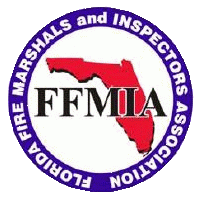 When initially filed in 2002, certain representatives from the Florida Fire Marshals and Inspectors Association (FFMIA) called on legislators to pass this bill as a testament to their concern for the safety of our heroic firefighters. Instead of presenting authoritative documentation demonstrating that a variety of different fire safety solutions should be tailored to a structure�s material composition, size, entry and egress, construction features and existing fire safety elements, the impressively uniformed lobbyists convinced lawmakers that sprinkler retrofits were a fire safety panacea for every condominium. When initially filed in 2002, certain representatives from the Florida Fire Marshals and Inspectors Association (FFMIA) called on legislators to pass this bill as a testament to their concern for the safety of our heroic firefighters. Instead of presenting authoritative documentation demonstrating that a variety of different fire safety solutions should be tailored to a structure�s material composition, size, entry and egress, construction features and existing fire safety elements, the impressively uniformed lobbyists convinced lawmakers that sprinkler retrofits were a fire safety panacea for every condominium.
 | CHUCK AKERS - EXECUTIVE
DIRECTOR - FFMIA & AFSA
|
Not surprisingly, many of the uniformed retrofit proponents were receiving two paychecks. Executive Director Chuck Akers of the Florida Fire Marshals and Inspectors Association is also the Executive Director of the American Fire Sprinkler Association, an industry trade group responsible for boosting sprinkler sales. Other key Fire Marshals Association officials are also employed by the National Fire Sprinkler Association, another sprinkler trade organization behind the original legislation. FFMIA Past President and lifetime member Steven Randall is also the South Central Regional Manager of the National Fire Sprinkler Association (AKA Florida Fire Sprinkler Association). FFMIA lifetime member Buddy Dewar also serves as the National Fire Sprinkler Association�s Director of Regional Operations.
 | FFMIA's & NFSA's
BUDDY DEWAR |
Following a State-wide outcry against the suspect expenditure, the legislation was subsequently modified to allow condo owners to �Opt Out� of retrofitting their units �by the affirmative vote of two-thirds of all voting interests�. The opt-out provision, passed over the virulent objections of lobbyists for the Plumbers and Pipefitters Union and the Fire Sprinkler Associations, allowed Associations and their Fire Safety Engineers to tailor a �Minimum Alternative Life Safety System� instead of the budget busting sprinkler retrofit. As a concession to the lobbying interests, the corrective legislation required Fire Safety Engineers to add sprinkler retrofits in every unit foyer and common area when designing a comprehensive Fire Protection plan for an association.
 The serial hurricanes of 2004 and 2005 changed the world for Florida condominium owners, forcing associations across the state to wrestle with a litany of critical expenses. In a competition of life safety projects, the �Towering Inferno� scenarios used by lobbyists to market the sprinkler retrofits in Tallahassee were measured against the prospect of being sucked out of a 14th floor window. In addition to addressing two critically important life safety issues, condo owners had to upgrade 30 year-old elevators, 30 year-old parking decks, 30 year-old HVAC risers, 30 year-old roofs and face down a host of other important maintenance challenges. Having witnessed the ruinous devastation wrought by the hurricanes, local fire marshals across the state were at the forefront of promoting the immediate need for hurricane mitigation to save lives. The serial hurricanes of 2004 and 2005 changed the world for Florida condominium owners, forcing associations across the state to wrestle with a litany of critical expenses. In a competition of life safety projects, the �Towering Inferno� scenarios used by lobbyists to market the sprinkler retrofits in Tallahassee were measured against the prospect of being sucked out of a 14th floor window. In addition to addressing two critically important life safety issues, condo owners had to upgrade 30 year-old elevators, 30 year-old parking decks, 30 year-old HVAC risers, 30 year-old roofs and face down a host of other important maintenance challenges. Having witnessed the ruinous devastation wrought by the hurricanes, local fire marshals across the state were at the forefront of promoting the immediate need for hurricane mitigation to save lives.
 | | OCEAN MANOR AFTER HURRICANE WILMA |
Forced to pay $millions for code compliant upgrades required by windstorm insurance carriers, additional $millions for deductibles, uninsured losses and suddenly trebled insurance premiums, many Associations had to scramble to secure a combination of short and long-term (15 - 20 year) financing to preclude a mass exodus of fixed-income residents unable to pay the unanticipated assessments. Reserves that were rededicated for emergency use in special legislative sessions are long gone. While some associations have already spent fortunes retrofitting every exterior exposure with impact rated windows and doors and/or code-compliant shuttering systems, most are still actively engaged in their installation or the planning stages for this objective.
 | REPRESENTATIVE
CARL DOMINO |
In view of the crushing fiscal hardship suffered by Associations from the hurricanes, the legislature passed a bill to help besieged condominium owners survive the untenable financial squeeze. In 2006, House Bill 391 by Representative Carl Domino extended the deadline to retrofit high rise unit foyers and common areas with sprinklers from the current 2014 to 2025. The extra decade would afford unit owners an opportunity to amortize their association�s bloated debt service before paying another sizable assessment. After successfully surviving comprehensive committee reviews in both legislative bodies, HB 391 was passed out of the House by a vote of 113 Yeas vs. 0 Nays and was passed out of the Senate by a vote of 40 Yeas vs. 0 Nays. Retrofit lobbyists failed to convince lawmakers that investing scarce association resources in limited sprinklers would yield a more productive safety benefit than a comparable investment in hurricane protection. Despite its unanimous support and passage, Governor Bush surprised condo owners by vetoing the bill, pointing out the absence of any official study examining how retrofit costs will impact condominium owners.
 When the housing market collapsed last year, the recessionary impact on common interest communities was catastrophic. Assessment expenses that were previously fiscally precipitous suddenly slipped beyond the reach of financially strapped homeowners. In some associations, maintenance assessments were increased by 50% to pay down short term bridge loans required to return the property to habitability. When droves of homeowners abandoned their suddenly unaffordable properties to foreclosure, banks deliberately delayed taking title to dodge assessment obligations. The resulting association budget shortfalls were assessed to every unit owner. Projects not mandated in an association�s documents or not deemed operationally critical were postponed until 2011, 2012, 2013, etc. To help keep significant numbers of mostly elderly residents in their homes, urgently needed hurricane mitigation and other �life safety projects� were either suspended or enabled by additional (3rd or 4th) layers of multi-year bank financing. When the housing market collapsed last year, the recessionary impact on common interest communities was catastrophic. Assessment expenses that were previously fiscally precipitous suddenly slipped beyond the reach of financially strapped homeowners. In some associations, maintenance assessments were increased by 50% to pay down short term bridge loans required to return the property to habitability. When droves of homeowners abandoned their suddenly unaffordable properties to foreclosure, banks deliberately delayed taking title to dodge assessment obligations. The resulting association budget shortfalls were assessed to every unit owner. Projects not mandated in an association�s documents or not deemed operationally critical were postponed until 2011, 2012, 2013, etc. To help keep significant numbers of mostly elderly residents in their homes, urgently needed hurricane mitigation and other �life safety projects� were either suspended or enabled by additional (3rd or 4th) layers of multi-year bank financing.
 When Fannie Mae raised fees for Florida mortgages purchased or securitized on or after April 1, 2009, Director Lockhart declared that after reviewing their mortgage loans, they discovered record-high default and foreclosure rates among Florida condo owners. This unprecedented series of economic reversals is forcing Florida condo owners to measure the necessity for addressing even critical needs against a prospective foreclosure followed by bankruptcy proceedings. When Fannie Mae raised fees for Florida mortgages purchased or securitized on or after April 1, 2009, Director Lockhart declared that after reviewing their mortgage loans, they discovered record-high default and foreclosure rates among Florida condo owners. This unprecedented series of economic reversals is forcing Florida condo owners to measure the necessity for addressing even critical needs against a prospective foreclosure followed by bankruptcy proceedings.
 | | GARY POLIAKOFF |
When Crist vetoed SB 714, Association Attorney Gary A. Poliakoff of Becker & Poliakoff blasted the veto advice apparently accepted by the governor. In a letter to Crist, he asked, �With all due respect, exactly who did your advisors assume will be forced to pay the special assessments to retrofit a condominium where 40 percent to 50 percent of the units are in default in payment of their assessments, or in mortgage foreclosure?� How many unit owners in your building will be forced to move if burdened with another $8,000 to $20,000 assessment?
 The cost of retrofitting a high rise condominium building with a �Minimum Alternative Life Safety System� is astronomical. Recent bids for 200 to 400 member associations range from $1.4 million to $4.76 million. Basic retrofit costs run from $40/m2 ($3.75/ft2) to $65/m2 ($6/ft2) for common areas, hallways, stairwells and the foyer in every unit. The National Fire Sprinkler Association acknowledges costs as high as $108/m2 ($10/ft2). President Steve Muncy of the Dallas-based American Fire Sprinkler Association pegged the cost of high rise retrofits between $54/m2 ($5/ft2) and $162/m2 ($15/ft2). Local fire safety engineers point out that the dropped ceilings, drywalls and construction elements required to hide the steel, copper or CPVC will proportionately increase installation costs. Associations in which every unit has two completely different egresses to ground level are exempt. Sorry, two outlets to the same hallway doesn�t qualify. The cost of retrofitting a high rise condominium building with a �Minimum Alternative Life Safety System� is astronomical. Recent bids for 200 to 400 member associations range from $1.4 million to $4.76 million. Basic retrofit costs run from $40/m2 ($3.75/ft2) to $65/m2 ($6/ft2) for common areas, hallways, stairwells and the foyer in every unit. The National Fire Sprinkler Association acknowledges costs as high as $108/m2 ($10/ft2). President Steve Muncy of the Dallas-based American Fire Sprinkler Association pegged the cost of high rise retrofits between $54/m2 ($5/ft2) and $162/m2 ($15/ft2). Local fire safety engineers point out that the dropped ceilings, drywalls and construction elements required to hide the steel, copper or CPVC will proportionately increase installation costs. Associations in which every unit has two completely different egresses to ground level are exempt. Sorry, two outlets to the same hallway doesn�t qualify.
 The �Alternative Minimum Life Safety System� as mandated by statute was never intended for extinguishing fires. Its stated objective is to provide a moderately safe egress. It is only one of many layers of fire protection in an engineered fire safety plan. Since effective early detection and containment will save far more lives than the sprinklers placed in unit foyers and certain common areas (as required for an Alternative Minimum Life Safety Plan), they are arguably more important components to any integrated fire safety system. The �Alternative Minimum Life Safety System� as mandated by statute was never intended for extinguishing fires. Its stated objective is to provide a moderately safe egress. It is only one of many layers of fire protection in an engineered fire safety plan. Since effective early detection and containment will save far more lives than the sprinklers placed in unit foyers and certain common areas (as required for an Alternative Minimum Life Safety Plan), they are arguably more important components to any integrated fire safety system.
 | | COMPARTMENTATION |
The bill was written before several generations of new technology seriously dated many of the mandate�s precepts. Many of our buildings are ideally adapted to Compartmentation - fire resistance rated (1, 2 or 3 hours) assemblies, with smoke treatments, that contain the fire to the room of origin until Fire-Rescue arrives. If these �compartments� are sealed against fire/smoke spread with fire/smoke dampers (which restrict air movement in ducts), firestopping penetrations, fire doors and other safety features, they become a far more effective protection protocol - without risking building-wide water damage.
 | | MICROSCALE NANOCRYSTALLINE TIN OXIDE DETECTOR |
It also predates various emerging sensor technologies (e.g., computer vision system, distributed fiber optic temperature sensor, and intelligent multiple sensor), signal processing and monitoring technology (e.g., real-time control via Internet) and integrated fire detection systems. By centralizing signal processing on the detector�s circuit board, giving each detector its own central processing unit (CPU) and software storage, it can pass information to a central panel when polled or upon sensing a fire. Smart detection and alarm systems based on neural network technology can be integrated into building automation and control systems using a gateway to preserve the integrity of the fire safety system.
 | MICROSCALE AND TRADITIONAL
MACROSCALE CLASSIFIERS |
Benefits include smoke control (managing variable air volumes via existing HVAC systems), single seat access to building information, easier maintenance, sharing sensor data, obtaining information about the location and status of people during an emergency, two-way voice communications with every unit�s occupants and real-time data about their environment and condition. The same data can be made available for any unoccupied areas of the building, allowing firefighters to effectively assess conditions at or en route to any occupant�s location.
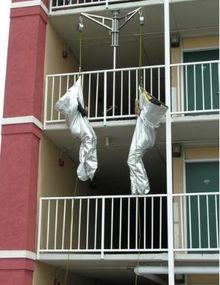 | MECHANICAL RATCHET
FIRE ESCAPE DEVISE |
A mechanical ratchet device that turns every window, balcony or catwalk into a viable escape egress was demonstrated and endorsed several times since 2006 at the Broward County Fire Academy. While the safety features inherent in these improvements are light years ahead of �sprinkler retrofits in unit foyers,� they portend no $billion payday for the legislation�s commercial supporters.
 | SENATORS DEUTCH & RING AND REPRESENTATIVES
SKIDMORE & POFFORD DEMAND SB 714 TASK FORCE |
Prior to the veto, Representative Ellyn Bogdanoff reminded Governor Crist that in 30 years, not one injury resulted from an association�s failure to perform a sprinkler retrofit. Senators Ted Deutch and Jeremy Ring, Statehouse Representatives Kelly Skidmore and Mark Pafford, along with other officials from Miami, Broward County and Parkland called upon Governor Crist to form a Task Force to repeal his veto of Senate Bill 714. Skidmore said, �As a result of Governor Crist�s veto and the Legislature�s failure to address the foreclosure crisis, thousands of Floridians who live in community associations will face increased association fees, also known as assessments, to comply with Florida law and make up for delinquent assessments unpaid by owners of foreclosed units. A perfect storm is brewing and it�s not out in the Atlantic. It�s right here in our community. Condo owners and their associations are about to collapse under the weight of a financial burden with no help in sight.�
 It is unlikely that a Task Force will revive the legislation. Upon vetoing the bill, senatorial candidate Crist emulated his predecessor, exclaiming, �I am directing the Department of Business and Professional Regulation to initiate a comprehensive review of actual retrofit costs and the impacts that retrofitting may have on insurance premiums.� Those of us that received a $20 discount for installing impact windows are still laughing. Since the actual retrofit expenses vary radically according to each association�s respective building elements and existing safety features, asking the DBPR to check the attendant costs will give little insight into prospective assessment charges. The good news is that when this issue returns next year, it will not face a Governor en route to Washington. It is unlikely that a Task Force will revive the legislation. Upon vetoing the bill, senatorial candidate Crist emulated his predecessor, exclaiming, �I am directing the Department of Business and Professional Regulation to initiate a comprehensive review of actual retrofit costs and the impacts that retrofitting may have on insurance premiums.� Those of us that received a $20 discount for installing impact windows are still laughing. Since the actual retrofit expenses vary radically according to each association�s respective building elements and existing safety features, asking the DBPR to check the attendant costs will give little insight into prospective assessment charges. The good news is that when this issue returns next year, it will not face a Governor en route to Washington.
Click To Top of Page
Omnibus Condo Bill

SB 714 Sent to Governor

  | | SURVIVING ASSOCIATION BILL - TALLAHASSEE |
May 16, 2009 - The 2009 Legislative Session was not technically over until Friday, May 8, 2009. However, legislative leaders decided to devote the final week to balancing significant inequities in the State budget and tweaking any bills useful to that end. For all intents and purposes, the session functionally ended on May 1, 2009. Most of the community association bills that occupied legislators for the past few months simply dissolved. The single exception is SB 714, by Senator Dennis Jones, which whizzed through the House and Senate before being ordered to the Governor's desk.
 | REPRESENTATIVE ELLYN BOGDANOFF
CHAIRS HOUSE FINANCE & TAX COUNCIL |
Having successfully navigated the Statehouse as HB 419 (originally filed by District 91 Representative Ellyn Bogdanoff), its provisions address a wide range of association issues including insurance, board elections, fire sprinklers, fire alarm systems, Timeshare Condominiums and back-up generators for elevators. The bill contains a long anticipated postponement of the multi $million fire sprinkler retrofit, delaying an onerous mandated condominium assessment from 2014 to 2025. It also removes the right of an association to force every unit owner to purchase HO-6 insurance (condominium unit insurance) and name the association as a beneficiary. Every other major community association bill was sent to the cornfield. As described earlier, these include S.B. 880 by Senator Fasano, S.B. 998 by Senator Ring, H.B. 27 by Representative Ambler, and H.B. 1397 by Representative Robaina.
 | RUSSIAN PRIME MINISTER VLADIMIR
PUTIN MAKING BALLOON ANIMALS
FOR HOUSE POLICY COUNCIL |
Although the Legislature was close to passing SB 880, in the waning days of the Legislative Session it became a vehicle for amendments filed by lawmakers trying to rescue provisions from their own failed bills. As it quickly inflated with questionable "reforms", it lost credibility and, more importantly, support. As a result, SB 880 was repeatedly postponed until the clock ran out. The many beneficial provisions in SB 880 were sacrificed to prevent some of the counterproductive amendments that were being proposed from sliding through the back door.
 While primarily a property insurance bill, HB 1495 (sponsored by Representative Bryan Nelson) created a program designed to assist condominium owners with "weatherizing their condominium units and mitigating all such units against wind damage." Eligible communities had to be located in the wind-borne debris region, contain 200 units or less and be insured by Citizens. The Department of Financial Services would have contracted with lenders - offering highly competitive weatherization and hurricane mitigation loan subsidies on loan balances of up to $5,000 per condominium unit for 3 years. Close your eyes and count to three! The weatherization program that was included in the second engrossed version mystically vanished when the bill was engrossed the third time. ABRACADABRA! As such, it was not part of the enrolled version sent to the Governor. POOF! While primarily a property insurance bill, HB 1495 (sponsored by Representative Bryan Nelson) created a program designed to assist condominium owners with "weatherizing their condominium units and mitigating all such units against wind damage." Eligible communities had to be located in the wind-borne debris region, contain 200 units or less and be insured by Citizens. The Department of Financial Services would have contracted with lenders - offering highly competitive weatherization and hurricane mitigation loan subsidies on loan balances of up to $5,000 per condominium unit for 3 years. Close your eyes and count to three! The weatherization program that was included in the second engrossed version mystically vanished when the bill was engrossed the third time. ABRACADABRA! As such, it was not part of the enrolled version sent to the Governor. POOF!
SB 714, the sole surviving community association bill, will have the following impacts:
Insurance:
Amends F.S. 627.714 to require all Unit Owner hazard insurance policies (�HO-6�) issued or renewed after July 1, 2009 to include at least $2,000.00 loss assessment coverage. Amends all references to �hazard� insurance found in F.S. 718.111(11) to �property� insurance. Amends F.S. 718.111(11)(a)2, dealing with �pooled insurance� products, to allow such policies issued before January 1, 2000 to continue without review and approval by the Office of Insurance Regulation until renewed after July 1, 2009, but prohibiting such programs from existing after July 1, 2010. Amends F.S. 718.111(11)(c)3 to remove requirement that notice of board meeting where insurance deductible is set contain specific information (but still requires 14 days notice). Amends F.S. 718.111(11)(g)1 by removing language regarding insurance of �improvements.� Amends F.S. 718.111(11)(g)2 regarding mandatory HO-6 insurance by eliminating the requirement. Amends F.S. 718.111(11)(g)4 to eliminate requirement that Association be loss payee and additional insured on HO-6 policy.
Board Elections:
Amends F.S. 718.112(2)(d)1 by providing that incumbent directors are �eligible� for reappointment (instead of automatically appointed) when no one runs for their seat. Amends F.S. 718.112(2)(d)1 to permit co-owners to serve on board if they own more than one unit and are not co-occupants of a unit. Amends F.S. 718.112(2)(d)1 to include special assessments and fines within financial delinquencies that can disqualify a director. Amends F.S. 718.112(2)(d)3 to eliminate requirement for pre-election candidate certification forms. Amends F.S. 718.112(2)(d)3.b (NEW) to require that within 90 days of election, each newly elected Director shall certify that they have read the Condominium Documents, that they will work to uphold such documents and policies to the best of their ability, and that they will faithfully discharge their fiduciary duty. In lieu of this certification, the newly elected Director may submit a certificate of satisfactory completion of educational curriculum administered by a Division-approved education provider. Failure to comply will result in disqualification, but does not affect the validity of any appropriate action taken by the board.
Fire Sprinklers:
Amends F.S. 718.112(2)(l) to push sprinkler retrofitting requirement from 2014 to 2025.
Fire Alarm Systems:
Amends F.S. 633.0215 to provide that a condominium that is one or two stories in height and has an exterior means of egress corridor is exempt from installing a manual fire alarm system as required in s. 9.6 of the most recent edition of the Life Safety Code adopted in the Florida Fire Prevention Code.
Timeshare Condominiums:
Amends F.S. 718.112(2)(d)1 to exempt timeshare condominiums from the requirement that the terms of all members of the board expire at the annual meeting unless otherwise permitted by the bylaws. Amends F.S. 718.112(2)(d)1 to exempt timeshare condominiums from the prohibition against co-owners serving on the board at the same time.
Generators for Elevators:
Repeals subsection (2) of Section 553.509, Florida Statutes, which requires multifamily dwellings, including a condominium, of at least 75 feet in height and with a public elevator, to have at least one public elevator that is capable of operating on an alternate power source for emergency purposes and to have a written emergency operations plan. SB 714 repeals these provisions.
 What Can I Do? What Can I Do?

Click To Top of Page
Condo & Co-op Bills
  
Legislative Survivors Face Veto Pen

 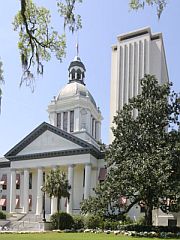 | LEGISLATION PERCOLATES
THROUGH TALLAHASSEE |
May 5, 2009 - Until a few years ago, Galt Mile residents demonstrated limited interest in what transpired during the annual Legislative sessions in Tallahassee. Issues preoccupying people living in common interest residences reflect the values of the general population, characterized by a large quiet center flanked by noisy extremes to the right and left. Inasmuch, the political proclivities of association homeowners were as statistically varied as those in society at large. Having chosen to live in a vertical community defined by rules created and enforced by the resident homeowners provided little impetus for political cohesion. This marked lack of �political identity�, instead of cloaking condo owners in protective anonymity, has ironically made them a target in Tallahassee. During the past few years, lawmakers have filed truckloads of legislation supposedly designed to address existing statutory shortcomings. However, more often than not, they were repositories for ill-conceived, contradictory and poorly drafted regulations suffering a fatal disconnect from their stated objectives.
 Not surprisingly, the 2009 legislative session in our State Capitol was again earmarked by a plethora of Community Association bills. While the majority focused on Homeowner Associations, condominiums were also targeted by legislators either seeking to improve the lives of the State�s 1.4 million condo owners and 77,000 cooperative unit owners or spin self-serving political platforms. Additionally, the session was rife with bills created to remove or rebalance many of the unworkable provisions passed during an end-of-session melee last year. Included among the corrective legislation are bills filed to undo counterproductive insurance regulations passed without the benefit of authoritative input. Following are some bills currently touring the State Capitol that, if passed, will either help stabilize or disrupt the 26,000 condominium and cooperative associations operating in the State of Florida. It is important that association members familiarize themselves with the legislative content to ascertain whether these bills deserve support or the axe. Not surprisingly, the 2009 legislative session in our State Capitol was again earmarked by a plethora of Community Association bills. While the majority focused on Homeowner Associations, condominiums were also targeted by legislators either seeking to improve the lives of the State�s 1.4 million condo owners and 77,000 cooperative unit owners or spin self-serving political platforms. Additionally, the session was rife with bills created to remove or rebalance many of the unworkable provisions passed during an end-of-session melee last year. Included among the corrective legislation are bills filed to undo counterproductive insurance regulations passed without the benefit of authoritative input. Following are some bills currently touring the State Capitol that, if passed, will either help stabilize or disrupt the 26,000 condominium and cooperative associations operating in the State of Florida. It is important that association members familiarize themselves with the legislative content to ascertain whether these bills deserve support or the axe.

Major 2009 Condominium Bills

HB 419 - SB 714

 | REPRESENTATIVE
ELLYN BOGDANOFF |
HB 419, sponsored by Representative Ellyn Bogdanoff, reverses some of the strange and expensive regulations that were piggy-backed onto large omnibus association and insurance bills at the end of last year's session. Her bill requires coverage under a condominium unit owner's residential property insurance policy to include a specified amount of loss-assessment coverage. It requires each policy to clarify that such coverage is excess coverage and specify when the date of loss occurs. It requires that coverage for certain personal property to be the responsibility of the condominium unit owner under certain circumstances. Subrogation uncertainties posed by these gray areas were abused by carriers seeking to delay or reject related claims. The bill revises board meeting notice requirements. It extends the installation deadline for certain expensive components of an Engineered Life Safety System and contains language to enable unfettered participation in a Self Insured Windstorm Trust.
 | | SENATOR DENNIS L. JONES |
Also known as the "Condominium Glitch Bill," SB 714 (sponsored by Senator Dennis L. Jones, D.C.) is also intended to correct several unintended consequences from language relating to insurance that passed in 2008. The bill requires that coverage under a unit owner's policy for certain assessments include at least a minimum amount of loss assessment coverage. It provides an exemption for certain condominiums from installing a manual fire alarm system as required in the Life Safety Code if certain conditions are met. It requires that adequate property insurance be based upon the replacement cost of the property to be insured as determined by an independent appraisal or update of a prior appraisal.
While similar, Bogdanoff's HB 419 contained incremental palliative benefits for cash-strapped associations. On April 15th, Senator David Aronberg finally offered an amendment adding comparable language to Senator Jones' Senate Bill 714 (SB 714) (co-introduced by Senators Mike Fasano and Jeremy Ring), allowing the legislation's major provisions to be independently vetted by the Statehouse and Senate.
 On April 27th, SB 714 passed a vote in the Senate by 38 Yeas vs. 0 Nays. The next day, it was substituted for Bogdanoff's HB 419. On April 29th, the bill passed a vote in the House by 114 Yeas vs. 2 Nays (4 not voting). After immediately returning to the Senate, it was ordered enrolled that same day. Unfortunately, when Bogdanoff's HB 419 was swapped out for SB 714, the language addressing the OIR's inability to oversee self insurance funds without traditional profit centers became a casualty, forcing the implementation of an alternative approach to correcting the bureaucratic deficiency. On April 27th, SB 714 passed a vote in the Senate by 38 Yeas vs. 0 Nays. The next day, it was substituted for Bogdanoff's HB 419. On April 29th, the bill passed a vote in the House by 114 Yeas vs. 2 Nays (4 not voting). After immediately returning to the Senate, it was ordered enrolled that same day. Unfortunately, when Bogdanoff's HB 419 was swapped out for SB 714, the language addressing the OIR's inability to oversee self insurance funds without traditional profit centers became a casualty, forcing the implementation of an alternative approach to correcting the bureaucratic deficiency.
 Senate Bill 714 was sent to the Governor shortly after being enrolled. To afford the Governor's staff adequate opportunity to evaluate legislation, surviving bills are usually spaced out over approximately 6 weeks - placing the bill in the Governor's "on deck" file in May or even June. Upon receiving the bill, the Governor will have 15 days to take action. While the bill can become law with or without the Governor's signature, a gubernatorial veto will undo the legislature's handiwork. If this bill becomes law on July 1, 2009 (its effective date), it will provide the following: Senate Bill 714 was sent to the Governor shortly after being enrolled. To afford the Governor's staff adequate opportunity to evaluate legislation, surviving bills are usually spaced out over approximately 6 weeks - placing the bill in the Governor's "on deck" file in May or even June. Upon receiving the bill, the Governor will have 15 days to take action. While the bill can become law with or without the Governor's signature, a gubernatorial veto will undo the legislature's handiwork. If this bill becomes law on July 1, 2009 (its effective date), it will provide the following:
For policies issued or renewed on or after July 1, 2009, coverage under a unit owner's residential property policy (HO-6 policy) shall include property loss assessment coverage of at least $2,000 for all assessments made as a result of the same direct loss to the property, regardless of the number of assessments, owned by all members of the association collectively when such loss is the type of loss covered by the unit owner's HO-6 policy. A deductible of no more than $250.00 per direct property loss shall apply. If a deductible was or will be applied to other property loss sustained by the unit owner resulting from the same direct loss to the property, no deductible shall apply to the loss assessment coverage. Every HO-6 policy must contain a provision which states that the coverage provided by such policy is excess coverage over the amount recoverable under any other policy covering the same property. A condominium that is one or two stories in height and has an "exterior means of egress corridor" (i.e. catwalk) is exempt from having to install a manual fire alarm system as required in Section 9.6 of the Life Safety Code.  A property insurance policy or program (i.e. - self insurance fund) that was issued before January 1, 2000, and which has provided uninterrupted property insurance coverage for a group of no fewer than three communities is NOT subject to review and approval by the Office of Insurance Regulation (OIR) until renewed after July 1, 2009. A property insurance policy or program (i.e. - self insurance fund) that was issued before January 1, 2000, and which has provided uninterrupted property insurance coverage for a group of no fewer than three communities is NOT subject to review and approval by the Office of Insurance Regulation (OIR) until renewed after July 1, 2009. The notice for the board meeting at which insurance deductibles will be established NO LONGER needs to state the proposed deductible, the funds available, the board's assessment authority or an estimate for any potential assessment needed to pay such deductibles. Clarifies that the association's coverage excludes all personal property located within the boundaries of a unit and which serve only such unit and that such property insurance coverage shall be the owner's responsibility. Removes the requirement that the association be named as an additional insured and loss payee on the owner's HO-6 policy. Removes the requirement that the association inquire as to each owner's HO-6 coverage and removes the ability of the association to purchase or "force place" any missing unit owner policies. Changes the standard for the association's insurance coverage from "full insurable value" to the "replacement cost". If the number of board members whose terms have expired exceeds the numbers of candidates running for those seats, each expired board member would now become eligible for reappointment to the board rather than having to run for re-election. Co-owners of a unit would both be eligible to serve on the board ONLY IF they own more than one unit and are not co-occupants of any unit. Timeshares would be specifically exempted from the co-ownership occupancy restriction. Adds fines, fees and special assessments to the list of items that render an owner ineligible to serve on the board if not paid for 90 days. Removes the requirement to sign and send in a Candidate Certification form before an election and replaces it with the requirement that each newly elected director must certify in writing within 90 days after being elected that he or she has read the association's declaration, articles of incorporation, bylaws and current written policies. These newly elected directors must also certify that they will work to uphold such documents to the best of their ability and will faithfully discharge thier fiduciary duties to the members. In lieu of this written certification, directors may also submit a certificate that they have satisfactorily completed an educational program administered by a Division-approved educational provider. Failure to file either the certifcation or the educational course certificate will result in the director being unable to serve any longer on the board. Extends the deadline for residential high-rises to retrofit their common areas with sprinkler systems from the current 2014 to 2025. Repeals Section 553.509 (2) which requires residential buildings with at least one public elevator to have an alternate power source such as a generator.
 | | GOVERNOR CHARLIE CRIST |
SB 714 provides some much needed assistance to associations fiscally crippled by foreclosure precipitated maintenance shortages, short and long term debt service, uninsured storm damage repairs, super-sized deductibles and carrier mandated hurricane mitigation upgrades - primarily by removing some of the troublesome insurance provisions created last year. If your community can benefit from the financial relief provided in this bill, please make it a priority to email the governor and express a strong message of support NOW. The deep-pocketed industry groups that stand to lose $billions (The American and National Fire Sprinkler Associations and the Plumbers and Pipefitters Union) will fund vehement opposition to this bill to elicit a gubernatorial veto. In 2006, a similar bill sailed through the House and Senate to the lame duck Governor's desk where it was dismantled by a veto. Since the recession has sharply intensified the need for relief, the legislature has provided a second bite at the apple. To postpone a $million PLUS assessment by your association, help nurse this bill safely into law. The Governor has repeatedly proven his sensitivity to constituent concerns and willingness to incorporate them into his decisions.
What Can I Do?

 Please email Governor Crist today with your support for SB 714 at [email protected]. Please email Governor Crist today with your support for SB 714 at [email protected].

SB 880

 | | SENATOR MIKE FASANO |
Senate Bill 880 (SB 880) sponsored by Senator Mike Fasano and co-introduced by Senator Jeremy Ring, makes a series of changes to the Condominium Act, including revisions to the insurance requirements enacted in 2008.
 | | SENATOR JEREMY RING |
SB 880, if it ultimately becomes law, will allow condominium members� voting rights to be suspended if they are delinquent in paying assessments, allow condominium associations to suspend use rights to common facilities, allow associations to collect unpaid assessments from tenants, allow for the collection of costs imposed by a management company related to the recovery of unpaid assessments and amend the Homeowners Association Act, Section 720, Florida Statutes, to provide a vehicle to allow a homeowners association, if approved by the members, to acquire golf courses or other recreational facilities. SB 880 also addresses the purchase of units by �bulk buyers.� The intent is to stimulate the condominium market by encouraging purchasers to buy units in bulk. This would especially help distressed properties with large numbers of units that were never sold by the Developer.
Records: The legislation limits the liability of destroyed and damaged records and for the misuse of records by others. It also expands the personal information in the records that is considered confidential and would include e-mail addresses in the protected records. Amendments: The legislation modifies 718.110 (13) to permit amendments to rental restrictions that do not affect the restrictions on the rental duration. Board Elections: The legislation modifies the eligibility requirements for board members and modifies the certification process for candidates for the board. Assessment Delinquencies: The Legislation would require a director to vacate the office when delinquent in the payment of any fee, assessment or special assessment due to the association for more than 90 days; it would authorized the association to collect assessments from the tenant of a delinquent owner; and it would authorize the association to deny a delinquent owner to use the common element amenities. Telecommunication Bulk Contracts: The legislation revises the provisions for bulk telecommunication services and expands the language to include new technologies. Budget: The legislation revises the format for association budgets to exclude all expenses of the unit owners. Fees for Delinquency Notice: The legislation would modify 718.116 and authorize a fee of up to $75 for collection letters notifying an owner of assessment delinquencies. Bulk Buyer: There is a traveling amendment that creates a Part VII to the Act that would clarify the rights and responsibilities of a bulk buyer of units at a distress sale or foreclosure sale.
When initially filed in the Senate on January 21, 2009, SB 880 was referred to Regulated Industries, Banking and Insurance, Community Affairs and the Judiciary Committees for review. On April 1st, it passed out of Regulated Industries by a vote of 8 Yeas vs. 0 Nays. Following the filing of a Committee Substitute on April 3rd,the original reference to Banking and Insurance was removed. On April 14th, the amended bill passed out of Community Affairs by a vote of 10 Yeas vs. 0 Nays. The final committee hurdle was forded on April 21st, when it passed Judiciary by a vote of 9 Yeas vs. 0 Nays. Following the filing of another Committee Substitute on April 23rd, it was placed on the Special Order Calendar and read a second time on April 28th.
SB 880 contained language which would have allowed condominium boards to suspend a delinquent owner's use rights to the common elements; would have allowed a board to collect regular assessments from a tenant in a delinquent unit and would have held banks responsible for the maintenance and preservation of units during the pendency of their foreclosure actions rather than having the paying owners shoulder that burden. Unfortunately, when detrimental last minute amendments were added to the bill, consensus hit a brick wall. These eleventh hour additions would have prevented HOA's from charging a transfer fee in connection with the sale or lease of a home and would have made it more difficult for associations to obtain loans and lines of credit. After poisoning the popular "lender reform" legislation, clouds rolled in as the bill was repeatedly placed on the Special Order Calendar, fruitlessly awaiting attention by the full Senate.
What Can I Do?

 Unless the bill is revived by Senate President Jeffrey Atwater, it will likely remain in suspended animation through the balance of the session, thereafter vanishing into posterity. To re-animate the legislation, email Senator Jeff Atwater at [email protected] or call him in Tallahassee at (850) 487-5100; locally at (954) 847-3518 or (561) 625-510 or toll-free (from out of state) at 1-866-757-1902 - and express your strong support. Unless the bill is revived by Senate President Jeffrey Atwater, it will likely remain in suspended animation through the balance of the session, thereafter vanishing into posterity. To re-animate the legislation, email Senator Jeff Atwater at [email protected] or call him in Tallahassee at (850) 487-5100; locally at (954) 847-3518 or (561) 625-510 or toll-free (from out of state) at 1-866-757-1902 - and express your strong support.

HB 1495 - SB 1950

 | | REP. BRYAN NELSON |
HB 1495, sponsored by Representative Bryan Nelson, revises provisions of law relating to SBA investments in revenue bonds, Florida Hurricane Catastrophe Fund, My Safe Florida Home Program, debt cancellation products under casualty insurance, standards for rate filings, residential property insurance rate filings, transparency in rate regulation filings relating to attorney-client privilege & work product exemptions.
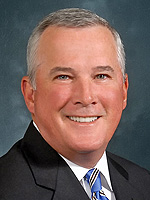 | | SENATOR GARRETT RICHTER |
Its sister bill in the Senate is SB 1950, sponsored by Senator Garrett S. Richter. Revises the dates of an insurer's contract year for purposes of calculating the insurer's retention. Requires the State Board of Administration to offer an additional amount of reimbursement coverage to certain insurers that purchased coverage during a certain calendar year. Prohibits a public adjuster from accepting referrals for compensation from a person with whom said adjuster conducts business, etc.
These are comprehensive property insurance bills. Section 3 of CS/SB 1495 creates a new mitigation loan program to upgrade condominiums containing 200 units or less against wind damage. Eligible communities must be in the wind-borne debris region and be insured by Citizens. The bill also phases out the upper levels of a state-supported hurricane insurance backup pool by $2 billion a year until its gone altogether in six years.
Unfortunately, the mitigation program was eliminated in the eleventh hour (see here). This program was designed to assist condominium owners in "weatherizing their condominium units and mitigating all such units against wind damage." The program would have necessitated the following minimum requirements:
 The Department of Financial Services will contract with lenders to offer weatherization and hurricane mitigation loan subsidies equal to a competitive rate of interest on a loan balance of up to $5,000 per condominium unit for 3 years. The interest subsidy may be paid in advance by the department to a lender participating in the program. The Department of Financial Services will contract with lenders to offer weatherization and hurricane mitigation loan subsidies equal to a competitive rate of interest on a loan balance of up to $5,000 per condominium unit for 3 years. The interest subsidy may be paid in advance by the department to a lender participating in the program.
The loans must be used to purchase or install weatherization measures and hurricane mitigation measures.
A participating condominium association must agree to purchase and install weatherization and mitigation measures for each unit in the condominium that lacks those measures.
To be eligible for this program, a condominium must have been permitted for construction on or before March 1, 2002 and must be located in the wind-borne debris region.
Condominiums with more than 200 units are not eligible for this program.
The loan program will be administered on a first-come, first-served basis.
 Additionally, it allows insurers to increase statewide rates by 10 percent and repeals the requirement that, effective Jan. 1, 2010, sellers of property located in the wind-borne debris region and which has an insured value on the structure of $500,000 or more, provide prospective buyers the structure�s windstorm mitigation rating. Unfortunately, HB 1495 was also stripped of funding for the My Safe Florida Home hurricane mitigation program. Additionally, it allows insurers to increase statewide rates by 10 percent and repeals the requirement that, effective Jan. 1, 2010, sellers of property located in the wind-borne debris region and which has an insured value on the structure of $500,000 or more, provide prospective buyers the structure�s windstorm mitigation rating. Unfortunately, HB 1495 was also stripped of funding for the My Safe Florida Home hurricane mitigation program.
After passing the Statehouse on April 24th by a vote of 75 Yeas vs. 33 Nays (12 not voting), it was sent to the Senate, substituted for SB 1950 on April 28th and passed by a vote of 34 Yeas vs. 2 Nays (4 not voting). Following additional House and Senate amendments, the bill was revoted in both houses on May 1st. The House passed the bill by a vote of 80 Yeas vs. 35 Nays (5 not voting) and the Senate passed it by 32 Yeas vs. 6 Nays (2 not voting). After ordered engrossed in the House, it was enrolled.
Attention!!!: On May 4th, HB 1495 was engrossed a third time. Unfortunately, the Weatherization Program included in the April 24th second engrossed bill (detailed above) was quietly omitted. As such, the May 7th enrolled version sent to the Governor does not contain help for homeowners that need to mitigate against hurricane damage, only a green light for insurance carriers to hike rates. RIPPED AGAIN!

2009 Association Also-Rans

HB 27 - Runs Out of Gas

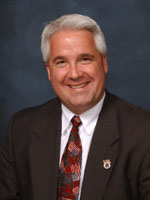 | | REP. KEVIN C. AMBLER |
HB 27, filed by Representative Kevin C. Ambler in the Statehouse and its companion bill in the Senate, SB 2604 filed by Senator Andy Gardiner, propose a variety of changes to the chapters governing condominiums and mandatory homeowners associations. Basically identical to the measure that passed unanimously in both Houses in 2008 and vetoed because two sections dealing with swimming pool drains troubled the Governor, the new version removed those controversial provisions prior to filing.
 | | SENATOR ANDY GARDINER |
For Homeowner Associations: The legislation would clarify the times when board meetings may be closed to the homeowners; modify the procedures for accessing records of the homeowners' association and provides for the recovery of personnel costs incidental to record production; clarifies the voting process when it is done by secret ballot; requires newly-elected board members to sign a certification that they have read the community governing documents; and prohibits compensation of directors and officers of the association with limited exceptions. The legislation modifies the policies and disclosure requirements for homeowners' association reserve accounts; makes minor changes to the assessment guarantee requirements of the developer; and requires new disclosures for assessments by a community development district. The legislation would permit a fine of more than $1,000 against a parcel owner to become a lien against a parcel. For disputes in a mandatory homeowners association, the bill requires that they be either mediated or arbitrated prior to the filing of a complaint in circuit court.
For Condominium Associations: To provide collection relief for financially impacted associations, beneficial language includes providing condominium and homeowner associations with the ability to collect unpaid assessments directly from tenants and allows for the suspension of common facility use rights for condominium owners who are delinquent in the payment of their assessments. One strange provision required new board members to certify 30 days after election that they've read the declaration, articles of incorporation, bylaws and written policies. However, the bill doesn't delete the existing requirement for candidate certification forms, thereby requiring two certification forms expressing identical data. Is it possible that lawmakers neglect to read their own bills? As the session headed into the final week, lawmakers with tabled bills sought to find alternative vehicles for their derailed work product. HB 27 was hit with scores of amendments from April 22nd to April 28th, where it was awaiting consideration by several Senate Committees after passing an April 23rd Statehouse vote by 115 Yeas vs. 2 Nays (3 not voting). Some of the controversial last minute amendments cost the bill support in the Senate, condemning it to oblivion.
SB 998 - Condos and HOAs

 | | SENATOR JEREMY RING |
SB 998, filed by Senator Jeremy Ring, proposed a series of statutory changes for condominiums and homeowners� associations. It provides that that certain condominiums need not retrofit the inside of units with fire alarm systems or smoke-detection systems if the structure has 1� hour or higher fire-rated walls and is not a high rise building. The bill requires that a first mortgagee or its successor or assignee pay to the condominium association the lesser of the unit�s unpaid common expenses and regular periodic assessments which accrued or came due during the immediately preceding 6 months (12 months for a Homeowner Association) or 1 percent of the original mortgage debt within one year of a foreclosure filing. It repeals the requirement that certain multifamily dwellings have a least one elevator capable of operating on an alternate power source for emergency purposes.
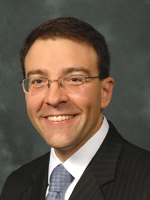 | | REP. ARI ABRAHAM PORTH |
Originally, the legislation had a simple companion bill in the Statehouse, HB 663, filed by Representative Ari Abraham Porth. As in its Senate companion, the House bill revises certain liability limitations of a first mortgagee or its successor or assignees who acquire title to a condominium unit or homeowners' association parcel by foreclosure or by deed. The obligation will be triggered after one year unless the unit is occupied by a unit owner petitioning for relief under chapter 13 or chapter 7 of the federal Bankruptcy Code.
As SB 998 evovled, it adopted provisions found in HB 831 and HB 1165, both sponsored by Representative James C. "Jim" Frishe. Despite SB 998 sailing unanimously through Regulated Industries and Community Affairs Committees by April 14th, it lacked the juice to get through its remaining vetting obstacles by May 1, 2009, the session's operational clip date. Portions of Ring's bill were ultimately moved to SB 880, which also failed to pass muster.
HB 1397 Sinks Under its Own Weight

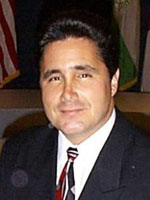 | | REP. JULIO ROBAINA |
Representative Julio Robaina's HB 1397 ceased progress on April 15th. The original 184-page bill was replaced by a 190-page bill on April Fools Day. The massive bill is a chinese menu featuring some useful provisions blended with regulations of no ostensible benefit. Not unlike previous incarnations, the legislation contains scores of questionable "reforms" for which little or no rationale is provided. In compliance with Robaina's 2008 legislation, thousands of associations held expensive full membership votes to maintain staggered two-year terms for board members. Enigmatically, the current bill requires that the vote be repeated again this year. One regulation requires an association's members to set the dates and times for board meetings a year in advance with the proviso that any rescheduling would require majority approval of the entire membership. Scores of comparably cryptic statutory changes corroborate a disconnect with the operational realities impacting association functionality. Senate Bill 2302, a 175-page companion bill filed on February 26th by Senator Rudy Garcia essentially mirrored Representative Robaina's HB 1397.
 | | SENATOR RUDY GARCIA |
 Another provision would have created an investigative and law enforcement agency costing $1,849,484 in FY 2009-2010 and $1,517,790 as an annually recurring expense. Although legislative cost estimates reflect the initial hiring of 24 law enforcement professionals, attorneys, Investigative Specialists, Researchers, Administrative Assistants and auxiliary support staff along with 7 specially equipped vehicles (and vehicle maintenance), a more comprehensive analysis that incorporated the unit's operational expenses (commissioned consultants, court costs, arbitration and mediation expenses, travel, etc.) portends nearly $3 million annually - payable by association members. Assigned to investigate condominium and cooperative association offenses, these sworn law enforcement officers would be organized under a model otherwise used for beverage industry law enforcement. Another provision would have created an investigative and law enforcement agency costing $1,849,484 in FY 2009-2010 and $1,517,790 as an annually recurring expense. Although legislative cost estimates reflect the initial hiring of 24 law enforcement professionals, attorneys, Investigative Specialists, Researchers, Administrative Assistants and auxiliary support staff along with 7 specially equipped vehicles (and vehicle maintenance), a more comprehensive analysis that incorporated the unit's operational expenses (commissioned consultants, court costs, arbitration and mediation expenses, travel, etc.) portends nearly $3 million annually - payable by association members. Assigned to investigate condominium and cooperative association offenses, these sworn law enforcement officers would be organized under a model otherwise used for beverage industry law enforcement.
 Robaina's 2008 omnibus association bill (HB 995) vested the board of administration of a condominium association with broad emergency powers to contend with, for instance, the effects of a hurricane. It "can borrow, move money from reserves, meet without notice, evacuate the building and make emergency repairs." This year's bill reverses his emergency powers provisions of the previous year, insisting that "emergency powers may only be exercised during the term of the stated emergency unless more than 20% of the units are uninhabitable." For a hurricane or a flood, that limits the emergency powers to a 4 to 24 hour window during which an area is so characterized by the State - not much time to evaluate the damage, raise the funds, secure contractors and perform the repairs required to restore the building to pre-storm status. Robaina's 2008 omnibus association bill (HB 995) vested the board of administration of a condominium association with broad emergency powers to contend with, for instance, the effects of a hurricane. It "can borrow, move money from reserves, meet without notice, evacuate the building and make emergency repairs." This year's bill reverses his emergency powers provisions of the previous year, insisting that "emergency powers may only be exercised during the term of the stated emergency unless more than 20% of the units are uninhabitable." For a hurricane or a flood, that limits the emergency powers to a 4 to 24 hour window during which an area is so characterized by the State - not much time to evaluate the damage, raise the funds, secure contractors and perform the repairs required to restore the building to pre-storm status.
 When it became apparent by mid-April that burdening associations with expensive heavy handed regulations didn't resonate with thousands of associations across the state, Mr. Robaina attempted to redistribute scores of his provisions into surviving bills. While those regulations deemed reasonable were accepted, the majority were rejected by the bills' sponsors. As recently expressed by a New Port Richey legislator, "His attempt to dedicate an independent law enforcement agency to pursue a specific class of homeowner elicits visions of a special Guantanamo-style camp packed with decorating committee volunteers, building managers and board members held without trial. Next year's bill could add intelligence capabilities and shoot for expunging habeas corpus under a Patriot Act exclusion tailored for vertical communities." In summary, most of the positive aspects included in Representative Robaina's original legislation found homes in alternative bills. When it became apparent by mid-April that burdening associations with expensive heavy handed regulations didn't resonate with thousands of associations across the state, Mr. Robaina attempted to redistribute scores of his provisions into surviving bills. While those regulations deemed reasonable were accepted, the majority were rejected by the bills' sponsors. As recently expressed by a New Port Richey legislator, "His attempt to dedicate an independent law enforcement agency to pursue a specific class of homeowner elicits visions of a special Guantanamo-style camp packed with decorating committee volunteers, building managers and board members held without trial. Next year's bill could add intelligence capabilities and shoot for expunging habeas corpus under a Patriot Act exclusion tailored for vertical communities." In summary, most of the positive aspects included in Representative Robaina's original legislation found homes in alternative bills.
SB 664 and HB 1297

 | | SENATOR ELEANOR SOBEL |
Senate Bill 664 (S8 664) by Senator Eleanor Sobel extends the deadline (for two years) from 2014 to 2016 for the requirement to retrofit condominium common areas with guardrails and handrails. Seeking to provide some financial relief to her elderly Hollywood condo constituents, Senator Sobel targeted these structures for minor upgrading delays. Its Statehouse companion bill, HB 1297 by Representative Elaine J. Schwartz, additionally postpones compliance with minimum firesafety codes until 2016. The House bill also exempts owners of certain apartment buildings or condominiums from requirement to install fire alarm system (as expressed in NFPA 101 - National Fire Protection Association (NFPA) 101, Life Safety Code, 2007 edition).
 | | REP. ELAINE J. SCHWARTZ |
Schwartz points out that the standards established by the National Fire Protection Association (NFPA) 101, Life Safety Code, 2007 edition, do not apply to structures that have direct access to the outside from each living unit or that are three or fewer stories in height. The bill sought to remove an expensive fire safety upgrade that was never deemed necessary and delay one that was. On March 3, 2009, the House bill was referred to the Military & Local Affairs Policy Committee; Insurance, Business, & Financial Affairs Policy Committee; Economic Development & Community Affairs Policy Council and the Policy Council. The Senate bill was sent to the Committees on Regulated Industries; Community Affairs; and Banking and Insurance. Neither bill was heard in any committee, and these bills were essentially considered Session casualties shortly after being filed. Sponsors were hoping to obtain a special waiver of the rules that might have resulted in their being granted a special hearing. Fat chance!

In Washington D.C.

Bank Lobby Buries H.R. 1106

 | BANKING COMMITTEE SENATORS CHRIS DODD
AND RICHARD SHELBY FLUB COMPROMISE |
Congressman John Conyers� federal mortgage modification bill entitled H.R. 1106 - the �Helping Families Save Their Homes Act of 2009� was designed to assist, among others, homeowners carrying mortgage debt that exceeds the value of their property. A proposal to imbue bankruptcy judges with the power to alter mortgage terms in bankruptcy court threatened to eliminate an association�s right to collect past due assessments from owners. The resulting shortage would have to be offset by incrementally assessing all the association�s members. Squarely in the Washington D.C. and national media spotlight, the controversy over this issue went unresolved, despite pressure from Senate leaders to formulate an acceptable compromise. They failed. The bill is frozen solid in the Senate footlocker.
On April 30th, Senator Dick Durbin proposed Senate Amendment 1014 (SA 1014) to S. 896 - the "Helping Families Save Their Homes Act of 2009" (a Senate bill considering similar issues in the House Bill H.R. 1106). The amendment contained the compromise that Senate leaders hoped would lead to consensus. The amendment would need 60 Senators to endorse inclusion (3/5 of the Senate). The full Senate rejected the amendment by a vote of 45 Yeas vs. 51 Nays (4 not voting).
 The underlying reason for this bill's demise was NOT the Senate's failure to achieve a consensus. It was NOT because thousands of association members from all parts of the country bitterly complained about the prospect of Bankruptcy Court decisions intensifying their fiscal burden. It was pressure from the most powerful lobby in Washington. Although they clearly helped precipitate the nation's financial crisis, the Banking Lobby has never been a more potent legislative influence. Flush with billions in federal "recovery" dollars, they condemned the bill and sealed its fate. However, since Congressional mechanics are as clear as mud, if the bill starts showing signs of life, we will take another look. The underlying reason for this bill's demise was NOT the Senate's failure to achieve a consensus. It was NOT because thousands of association members from all parts of the country bitterly complained about the prospect of Bankruptcy Court decisions intensifying their fiscal burden. It was pressure from the most powerful lobby in Washington. Although they clearly helped precipitate the nation's financial crisis, the Banking Lobby has never been a more potent legislative influence. Flush with billions in federal "recovery" dollars, they condemned the bill and sealed its fate. However, since Congressional mechanics are as clear as mud, if the bill starts showing signs of life, we will take another look.

Click To Top of Page
Sprinklers in the Foyer
  
Bogdanoff and Jones Revisit Sprinkler Extension

 April 23, 2009 - Seven years ago, the Florida Legislature passed a clandestine bill requiring every Florida Association housed in a structure 75 feet above grade to install a Full Sprinkler System or, alternatively, establish an acceptable �Engineered Life Safety System�. Scrutiny of the new law revealed it to be a $multi-billion payday for certain vested interests instead of effective fire protection. Drafted by the American Fire Sprinkler Association and the Florida Fire Sprinkler Association with input from the Plumbers and Pipefitters Union, glaringly absent from this �midnight legislation� were any studies or research clarifying its impact on condominium owners. April 23, 2009 - Seven years ago, the Florida Legislature passed a clandestine bill requiring every Florida Association housed in a structure 75 feet above grade to install a Full Sprinkler System or, alternatively, establish an acceptable �Engineered Life Safety System�. Scrutiny of the new law revealed it to be a $multi-billion payday for certain vested interests instead of effective fire protection. Drafted by the American Fire Sprinkler Association and the Florida Fire Sprinkler Association with input from the Plumbers and Pipefitters Union, glaringly absent from this �midnight legislation� were any studies or research clarifying its impact on condominium owners.
 When initially filed in 2002, certain representatives from the Florida Fire Marshals and Inspectors Association (FFMIA) called on legislators to pass this bill as a testament to their concern for the safety of our heroic firefighters. Instead of presenting authoritative documentation demonstrating that a variety of different fire safety solutions should be tailored to a structure�s material composition, size, entry and egress, construction features and existing fire safety elements, the impressively uniformed lobbyists convinced lawmakers that sprinkler retrofits were a fire safety panacea for every condominium. When initially filed in 2002, certain representatives from the Florida Fire Marshals and Inspectors Association (FFMIA) called on legislators to pass this bill as a testament to their concern for the safety of our heroic firefighters. Instead of presenting authoritative documentation demonstrating that a variety of different fire safety solutions should be tailored to a structure�s material composition, size, entry and egress, construction features and existing fire safety elements, the impressively uniformed lobbyists convinced lawmakers that sprinkler retrofits were a fire safety panacea for every condominium.
 | CHUCK AKERS - EXECUTIVE
DIRECTOR - FFMIA & AFSA
|
Not surprisingly, many of the uniformed retrofit proponents were receiving two paychecks. Executive Director Chuck Akers of the Florida Fire Marshals and Inspectors Association is also the Executive Director of the American Fire Sprinkler Association, an industry trade group responsible for boosting sprinkler sales. Other key Fire Marshals Association officials are also employed by the National Fire Sprinkler Association, another sprinkler trade organization behind the original legislation. FFMIA Past President and lifetime member Steven Randall is also the South Central Regional Manager of the National Fire Sprinkler Association (AKA Florida Fire Sprinkler Association). FFMIA lifetime member Buddy Dewar also serves as the National Fire Sprinkler Association�s Director of Regional Operations.
 | FFMIA's & NFSA's
BUDDY DEWAR |
Following a State-wide outcry against the suspect expenditure, the legislation was subsequently modified to allow condo owners to �Opt Out� of retrofitting their units �by the affirmative vote of two-thirds of all voting interests�. The opt-out provision, passed over the virulent objections of lobbyists for the Plumbers and Pipefitters Union and the Fire Sprinkler Associations, allowed Associations and their Fire Safety Engineers to tailor a �Minimum Alternative Life Safety System� instead of the budget busting sprinkler retrofit. As a concession to the lobbying interests, the corrective legislation required Fire Safety Engineers to add sprinkler retrofits in every unit foyer and common area when designing a comprehensive Fire Protection plan for an association.
 The serial hurricanes of 2004 and 2005 changed the world for Florida condominium owners, forcing associations across the state to wrestle with a litany of critical expenses. In a competition of life safety projects, the �Towering Inferno� scenarios used by lobbyists to market the sprinkler retrofits in Tallahassee were measured against the prospect of being sucked out of a 14th floor window. In addition to addressing two critically important life safety issues, condo owners had to upgrade 30 year-old elevators, 30 year-old parking decks, 30 year-old HVAC risers, 30 year-old roofs and face down a host of other important maintenance challenges. Having witnessed the ruinous devastation wrought by the hurricanes, local fire marshals across the state were at the forefront of promoting the immediate need for hurricane mitigation to save lives. The serial hurricanes of 2004 and 2005 changed the world for Florida condominium owners, forcing associations across the state to wrestle with a litany of critical expenses. In a competition of life safety projects, the �Towering Inferno� scenarios used by lobbyists to market the sprinkler retrofits in Tallahassee were measured against the prospect of being sucked out of a 14th floor window. In addition to addressing two critically important life safety issues, condo owners had to upgrade 30 year-old elevators, 30 year-old parking decks, 30 year-old HVAC risers, 30 year-old roofs and face down a host of other important maintenance challenges. Having witnessed the ruinous devastation wrought by the hurricanes, local fire marshals across the state were at the forefront of promoting the immediate need for hurricane mitigation to save lives.
 | | OCEAN MANOR AFTER HURRICANE WILMA |
Forced to pay $millions for code compliant upgrades required by windstorm insurance carriers, additional $millions for deductibles, uninsured losses and suddenly trebled insurance premiums, many Associations had to scramble to secure a combination of short and long-term (15 - 20 year) financing to preclude a mass exodus of fixed-income residents unable to pay the unanticipated assessments. Reserves that were rededicated for emergency use in special legislative sessions are long gone. While some associations have already spent fortunes retrofitting every exterior exposure with impact rated windows and doors and/or code-compliant shuttering systems, most are still actively engaged in their installation or the planning stages for this objective.
 | REPRESENTATIVE
CARL DOMINO |
In view of the crushing fiscal hardship suffered by Associations from the hurricanes, the legislature passed a bill to help besieged condominium owners survive the untenable financial squeeze. In 2006, House Bill 391 by Representative Carl Domino extended the deadline to retrofit high rise unit foyers and common areas with sprinklers from the current 2014 to 2025. The extra decade would afford unit owners an opportunity to amortize their association�s bloated debt service before paying another sizable assessment. After successfully surviving comprehensive committee reviews in both legislative bodies, HB 391 was passed out of the House by a vote of 113 Yeas vs. 0 Nays and was passed out of the Senate by a vote of 40 Yeas vs. 0 Nays. Retrofit lobbyists failed to convince lawmakers that investing scarce association resources in limited sprinklers would yield a more productive safety benefit than a comparable investment in hurricane protection. Despite its unanimous support and passage, Governor Bush surprised condo owners by vetoing the bill, pointing out the absence of any official study examining how retrofit costs will impact condominium owners.
 When the housing market collapsed last year, the recessionary impact on common interest communities was catastrophic. Assessment expenses that were previously fiscally precipitous suddenly slipped beyond the reach of financially strapped homeowners. In some associations, maintenance assessments were increased by 50% to pay down short term bridge loans required to return the property to habitability. When droves of homeowners abandoned their suddenly unaffordable properties to foreclosure, banks deliberately delayed taking title to dodge assessment obligations. The resulting association budget shortfalls were assessed to every unit owner. Projects not mandated in an association�s documents or not deemed operationally critical were postponed until 2011, 2012, 2013, etc. To help keep significant numbers of mostly elderly residents in their homes, urgently needed hurricane mitigation and other �life safety projects� were either suspended or enabled by additional (3rd or 4th) layers of multi-year bank financing. When the housing market collapsed last year, the recessionary impact on common interest communities was catastrophic. Assessment expenses that were previously fiscally precipitous suddenly slipped beyond the reach of financially strapped homeowners. In some associations, maintenance assessments were increased by 50% to pay down short term bridge loans required to return the property to habitability. When droves of homeowners abandoned their suddenly unaffordable properties to foreclosure, banks deliberately delayed taking title to dodge assessment obligations. The resulting association budget shortfalls were assessed to every unit owner. Projects not mandated in an association�s documents or not deemed operationally critical were postponed until 2011, 2012, 2013, etc. To help keep significant numbers of mostly elderly residents in their homes, urgently needed hurricane mitigation and other �life safety projects� were either suspended or enabled by additional (3rd or 4th) layers of multi-year bank financing.
 When Fannie Mae raised fees for Florida mortgages purchased or securitized on or after April 1, 2009, Director Lockhart declared that after reviewing their mortgage loans, they discovered record-high default and foreclosure rates among Florida condo owners. This unprecedented series of economic reversals is forcing Florida condo owners to measure the necessity for addressing even critical needs against a prospective foreclosure followed by bankruptcy proceedings. How many unit owners in your building will be forced to move if burdened with a $10,000 to $20,000 assessment? When Fannie Mae raised fees for Florida mortgages purchased or securitized on or after April 1, 2009, Director Lockhart declared that after reviewing their mortgage loans, they discovered record-high default and foreclosure rates among Florida condo owners. This unprecedented series of economic reversals is forcing Florida condo owners to measure the necessity for addressing even critical needs against a prospective foreclosure followed by bankruptcy proceedings. How many unit owners in your building will be forced to move if burdened with a $10,000 to $20,000 assessment?
 | | ELLYN BOGDANOFF FILES HB 419 |
Representatives Ellyn Bogdanoff and Matt Hudson filed House Bill 419 (HB 419), another bill that extends the 2014 sprinkler retrofit deadline to 2025. Two issues catapult this bill to critical passage status. The cost of retrofitting a high rise condominium building with a �Minimum Alternative Life Safety System� is astronomical. Recent bids for 200 to 300 member associations range from $1.4 million to $4.76 million. Basic retrofit costs run from $40/m2 ($3.75/ft2) to $65/m2($6/ft2) for common areas, hallways, stairwells and the foyer in every unit. The National Fire Sprinkler Association acknowledges costs as high as $108/m2 ($10/ft2). Local fire safety engineers point out that the dropped ceilings, drywalls and construction elements required to hide the steel, copper or CPVC will proportionately increase installation costs. Associations in which every unit has two completely different egresses to ground level are exempt. Sorry, two outlets to the same hallway doesn�t qualify.
 The �Alternative Minimum Life Safety System� as mandated by statute was never intended for extinguishing fires. Its stated objective is to provide a moderately safe egress. It is only one of many layers of fire protection in an engineered fire safety plan. Since effective early detection and containment will save far more lives than the sprinklers placed in unit foyers and certain common areas (as required for an Alternative Minimum Life Safety Plan), they are arguably more important components to any integrated fire safety system. The �Alternative Minimum Life Safety System� as mandated by statute was never intended for extinguishing fires. Its stated objective is to provide a moderately safe egress. It is only one of many layers of fire protection in an engineered fire safety plan. Since effective early detection and containment will save far more lives than the sprinklers placed in unit foyers and certain common areas (as required for an Alternative Minimum Life Safety Plan), they are arguably more important components to any integrated fire safety system.
 | | COMPARTMENTATION |
The bill was written before several generations of new technology seriously dated many of the mandate�s precepts. Many of our buildings are ideally adapted to Compartmentation - fire resistance rated (1, 2 or 3 hours) assemblies, with smoke treatments, that contain the fire to the room of origin until Fire-Rescue arrives. If these �compartments� are sealed against fire/smoke spread with fire/smoke dampers (which restrict air movement in ducts), firestopping penetrations, fire doors and other safety features, they become a far more effective protection protocol - without risking building-wide water damage.
 | | MICROSCALE NANOCRYSTALLINE TIN OXIDE DETECTOR |
It also predates various emerging sensor technologies (e.g., computer vision system, distributed fiber optic temperature sensor, and intelligent multiple sensor), signal processing and monitoring technology (e.g., real-time control via Internet) and integrated fire detection systems. By centralizing signal processing on the detector�s circuit board, giving each detector its own central processing unit (CPU) and software storage, it can pass information to a central panel when polled or upon sensing a fire. Smart detection and alarm systems based on neural network technology can be integrated into building automation and control systems using a gateway to preserve the integrity of the fire safety system.
 | MICROSCALE AND TRADITIONAL
MACROSCALE CLASSIFIERS |
Benefits include smoke control (managing variable air volumes via existing HVAC systems), single seat access to building information, easier maintenance, sharing sensor data, obtaining information about the location and status of people during an emergency, two-way voice communications with every unit�s occupants and real-time data about their environment and condition. The same data can be made available for any unoccupied areas of the building, allowing firefighters to effectively assess conditions at or en route to any occupant�s location.
 | MECHANICAL RATCHET
FIRE ESCAPE DEVISE |
A mechanical ratchet device that turns every window, balcony or catwalk into a viable escape egress was demonstrated and endorsed several times since 2006 at the Broward County Fire Academy. While the safety features inherent in these improvements are light years ahead of �sprinkler retrofits in unit foyers,� they portend no $billion payday for the legislation�s commercial supporters.
 HB 419 carries an added value. The legislation passed last year that enabled associations to create self-insurance windstorm trusts was subject to oversight by the Florida Office of Insurance Regulation (OIR). Unfortunately, the legislature never notified the OIR that the business structure of these self-insurance trusts was designed to save participating associations money by eliminating the need to fund the corporate profits that fuel commercial carriers. When the OIR went looking for the profit centers ordinarily evident in commercial carriers, they were surprised to find none. In a Twilight Zone moment, OIR insisted that the trust assess every member for the sole purpose of creating the profit centers that the trust was legislatively empowered to dispense with. Despite the trust's proof that they carried reinsurance coverage exceeding that of Citizens and OIR requirements, OIR bureaucrats explained that they measured carrier viability from the perspective of investors, not client-customers. In self-insurance trusts, the investors are the client-customers. HB 419 carries an added value. The legislation passed last year that enabled associations to create self-insurance windstorm trusts was subject to oversight by the Florida Office of Insurance Regulation (OIR). Unfortunately, the legislature never notified the OIR that the business structure of these self-insurance trusts was designed to save participating associations money by eliminating the need to fund the corporate profits that fuel commercial carriers. When the OIR went looking for the profit centers ordinarily evident in commercial carriers, they were surprised to find none. In a Twilight Zone moment, OIR insisted that the trust assess every member for the sole purpose of creating the profit centers that the trust was legislatively empowered to dispense with. Despite the trust's proof that they carried reinsurance coverage exceeding that of Citizens and OIR requirements, OIR bureaucrats explained that they measured carrier viability from the perspective of investors, not client-customers. In self-insurance trusts, the investors are the client-customers.
 | INSURANCE COMMISSIONER
KEVIN MCCARTY |
Since trust participants saved $millions in premiums last year, dozens of other associations have requested membership. Until the catch-22 dilemma with OIR is resolved, the trust was precluded from accepting new members. GMCA President Pio Ieraci traveled to Tallahassee and met with the enabling legislators, the trustees, representatives from OIR, Senate President Jeffrey Atwater, Statehouse Representative Ellyn Bogdanoff and Insurance Commissioner Kevin McCarty. Participants agreed that the legislature needed to create an alternative methodology for measuring the viability of carriers that aren�t profit-based. By OIR�s current standard, every non-profit NGO worldwide is a failed enterprise. HB 419 contains the language that cures this dilemma.
 Until April 15th, there was no corresponding legislation in the Senate. Senator David Aronberg finally offered an amendment adding the required language to Senate Bill 714 (SB 714), filed by Senator Dennis Jones and co-introduced by Senators Mike Fasano and Jeremy Ring. Until April 15th, there was no corresponding legislation in the Senate. Senator David Aronberg finally offered an amendment adding the required language to Senate Bill 714 (SB 714), filed by Senator Dennis Jones and co-introduced by Senators Mike Fasano and Jeremy Ring.
So here�s the deal. We either convince the Statehouse to pass HB 419, the Senate to pass SB 714 and the Governor to sign the legislation or prepare to pay a gargantuan assessment for a sprinkler head in your foyer, sprinkler heads down your hallways and sprinkler heads peppering the association�s lobby ceiling � virtual hotbeds of spontaneous combustion.
Make Your Voice Heard
Alert Our Florida Representatives and Senators

 To send emails to any or every Senator and any or every Statehouse Representative, first go to the Community Advocacy Network (CAN) web site and login using your email address and Password: 35707. Then Click on Capitol Connection on the left sidebar. The rest is intuitive! Click Here to CAN Member Login. To send emails to any or every Senator and any or every Statehouse Representative, first go to the Community Advocacy Network (CAN) web site and login using your email address and Password: 35707. Then Click on Capitol Connection on the left sidebar. The rest is intuitive! Click Here to CAN Member Login.
 If you prefer, you can send emails the old fashioned way to: If you prefer, you can send emails the old fashioned way to:
Click To Top of Page
Foreclosure Fallout
  
Banks Taint Rescue Bills

 | CONGRESSMAN
JOHN CONYERS |
April 13, 2009 - Community Associations that have been anticipating relief from lawmakers in Washington and Tallahassee may be headed for an exercise in disappointment. Congress is considering John Conyers� federal mortgage modification bill entitled H.R. 1106 - the �Helping Families Save Their Homes Act of 2009�. The bill, expected to reduce direct spending by about $27 million from 2009 to 2014, is designed to assist, among others, homeowners carrying mortgage debt that exceeds the value of their property. Already passed in the House, the banking lobby is making a run at the legislation in the Senate. A proposal to imbue bankruptcy judges with the power to alter mortgage terms in bankruptcy court threatened to eliminate an association�s right to collect past due assessments from owners. The resulting shortage would have to be offset by incrementally assessing all the association�s members.
 | | SENATORS CHRIS DODD AND RICHARD SHELBY |
After being stalled in the Senate, Senate Minority Leader Mitch McConnell and Senate Majority Leader Harry Reid agreed to stop bickering and write a bipartisan compromise plan. Senate Banking Committee Chairman Christopher Dodd, a Connecticut Democrat, and the panel�s top Republican, Richard Shelby of Alabama, are to write a new, bipartisan bill that will be substituted for the current proposal. Reid said it will be up to Dodd and Shelby to decide whether to include the bankruptcy provisions in the compromise plan. Just before April Fool�s Day, the chamber voted 94 to 1 to move toward final consideration of the bill. Condo and coop owners need to watch this legislation to avoid being judicially encumbered with their neighbor's debts.
 | | GOVERNOR CRIST AT TOWN HALL MEETING |
When Governor Charlie Crist held a Town Hall style meeting to address local concerns at the Beach Community Center on February 18th, hundreds of attending residents cheered for more than 5 minutes following his statement that the Calypso gasworks has been �put to bed. It�s gone!� With Calypso no longer an issue, the Governor called on L�Hermitage I Manager Patricia Quintero, who complained about delays to the planned beach renourishment and the additional financial burden placed on condo owners when maintenance liabilities from foreclosed units are incrementally assessed to the other owners.
 When tens of thousands of �no money down�, �deferred interest�, and �negative amortization� mortgages simultaneously turned terminally toxic, droves of homeowners abandoned their suddenly unaffordable properties to bank foreclosure. Since the mortgage debt in these foreclosures exceeded the collateralized property value, every foreclosed home meant more red ink in the foreclosing bank�s portfolio. Choked by the tidal wave of unwanted properties, they developed a �foot-dragging� strategy to help mitigate the pain. By instituting a deliberately dilatory foreclosure policy, bankers could temporarily postpone recording the losses. When tens of thousands of �no money down�, �deferred interest�, and �negative amortization� mortgages simultaneously turned terminally toxic, droves of homeowners abandoned their suddenly unaffordable properties to bank foreclosure. Since the mortgage debt in these foreclosures exceeded the collateralized property value, every foreclosed home meant more red ink in the foreclosing bank�s portfolio. Choked by the tidal wave of unwanted properties, they developed a �foot-dragging� strategy to help mitigate the pain. By instituting a deliberately dilatory foreclosure policy, bankers could temporarily postpone recording the losses.
 This scenario portends disastrous consequences for common interest communities. Under current law, a bank that obtains title to a condominium unit as a result of a foreclosure pays only six months unpaid common expenses and regular periodic assessments or 1% of the original mortgage amount, whichever is less. (For Homeowners Associations, banks are on the hook for twelve months or 1% of the original mortgage amount). By slowing the foreclosure process to forestall losses, banks further deprive associations of the minimal relief provided for in current statute. As a result, associations suffering from a substantial number of foreclosures are realizing enormous losses. In many cases, they�ve been forced to levy special assessments to cover the shortfall. This scenario portends disastrous consequences for common interest communities. Under current law, a bank that obtains title to a condominium unit as a result of a foreclosure pays only six months unpaid common expenses and regular periodic assessments or 1% of the original mortgage amount, whichever is less. (For Homeowners Associations, banks are on the hook for twelve months or 1% of the original mortgage amount). By slowing the foreclosure process to forestall losses, banks further deprive associations of the minimal relief provided for in current statute. As a result, associations suffering from a substantial number of foreclosures are realizing enormous losses. In many cases, they�ve been forced to levy special assessments to cover the shortfall.
 | | SENATOR JEREMY RING |
To help address the foreclosure shortfalls, Senator Jeremy Ring�s SB 998 states that �If a first mortgagee or its successor or assignees has not acquired title to an owner-occupied parcel one year after a foreclosure action is filed, the first mortgagee or its successor or assignees shall pay to the association the lesser of the parcel�s unpaid common expenses and regular periodic assessments which accrued or came due during the immediately preceding 6 months or one percent of the original mortgage debt.� Ring�s bill restricts the bank�s foreclosure foot-dragging to one year.
 | | SENATOR MIKE FASANO |
In SB 880, Senator Mike Fasano adds �special assessments� to the unpaid �common expenses and regular periodic assessments� that the bank must pay to the association upon foreclosure and increases the liability period from 6 to 12 months. It also increases the payment alternative - 1% of the original mortgage amount - to 20%. Additionally, failure to pay within 30 days of acquiring title will entitle the association to recover all outstanding special and regular assessments that became due before the acquisition of title.
 In a recent alert from the Community Association Leadership Lobby (CALL), a community association lobbying and legislative watchdog organization underwritten by association law firm Becker & Poliakoff, their Co-Executive Directors Yeline Goin and David Muller warn, �At the beginning of the legislative session, there were a number of bills filed to address this situation. However, the leadership in the legislature has made it known that these bills will not move as long as there is any language requiring banks to pay more than what is currently provided for in the statute. In other words, the banking lobby, fueled by billions of dollars in federal bailout money, has pressured the legislators into preserving the status quo.� In short, unit owners are being forced to subsidize the bank�s ownership obligation following a foreclosure. In a recent alert from the Community Association Leadership Lobby (CALL), a community association lobbying and legislative watchdog organization underwritten by association law firm Becker & Poliakoff, their Co-Executive Directors Yeline Goin and David Muller warn, �At the beginning of the legislative session, there were a number of bills filed to address this situation. However, the leadership in the legislature has made it known that these bills will not move as long as there is any language requiring banks to pay more than what is currently provided for in the statute. In other words, the banking lobby, fueled by billions of dollars in federal bailout money, has pressured the legislators into preserving the status quo.� In short, unit owners are being forced to subsidize the bank�s ownership obligation following a foreclosure.
 | SENATE PRESIDENT
JEFFREY ATWATER |
Associations will continue to face significant losses of revenue and the inability to fund their budgets until the legislature protects unit owners from having to subsidize bank-owned units. To help dislodge these bills, send an email to the Senate leadership, including:
- Senate President Jeff Atwater ([email protected])
312 Senate Office Building
404 South Monroe Street Tallahassee, FL 32399-1100; (850) 487-5100.
- His district office is located at 824 US Highway 1, #210
North Palm Beach, FL 33408; 1-866-757-1902.
- Senator Garrett S. Richter, ([email protected])
c/o of the Senate Banking and Insurance Committee
310 Senate Office Building
404 South Monroe Street, Tallahassee, FL 32399-1100, (850) 487-5124.
- His district office is located at Building F, Suite 203, 3301 E. Tamiami Trail
Naples, FL 34112-4961; (239) 417-6205.
Click To Top of Page
To GMCA HOME
To ISSUES INDEX
To TALLAHASSEE POLITICS PAGE
To TALLAHASSEE ARCHIVE
To TALLAHASSEE ARCHIVE - 2018
To TALLAHASSEE ARCHIVE - 2017
To TALLAHASSEE ARCHIVE - 2016
To TALLAHASSEE ARCHIVE - 2015
To TALLAHASSEE ARCHIVE - 2014
To TALLAHASSEE ARCHIVE - 2013
To TALLAHASSEE ARCHIVE - 2012
To TALLAHASSEE ARCHIVE - 2011
To TALLAHASSEE ARCHIVE - 2010
To TALLAHASSEE ARCHIVE - 2008
To TALLAHASSEE ARCHIVE - 2007
To TALLAHASSEE ARCHIVE - 2006
To TALLAHASSEE ARCHIVE - 2005
To TALLAHASSEE ARCHIVE - 2004
To TALLAHASSEE ARCHIVE - 2003
To FIRE SAFETY PAGE
To SHORE PROTECTION PAGE
To EMERGENCY ROOM PAGE
To CITY OF FORT LAUDERDALE PAGE
To FORT LAUDERDALE BUDGET CRISIS PAGE
To BROWARD COUNTY PAGE
To BROWARD COUNTY PROPERTY APPRAISER PAGE
To AUTOMATED EXTERNAL DEFIBRILLATOR PAGE
To CALYPSO GASWORKS PAGE
To 32nd STREET ALLEY PAGE
To FLPD CRIME STATISTICS
To MAIN PAGE
To GOVERNANCE
To REPORT CARD
To LAWS & STATUTES
To GOVERNMENT LINKS
Click To Top of Page
|
|